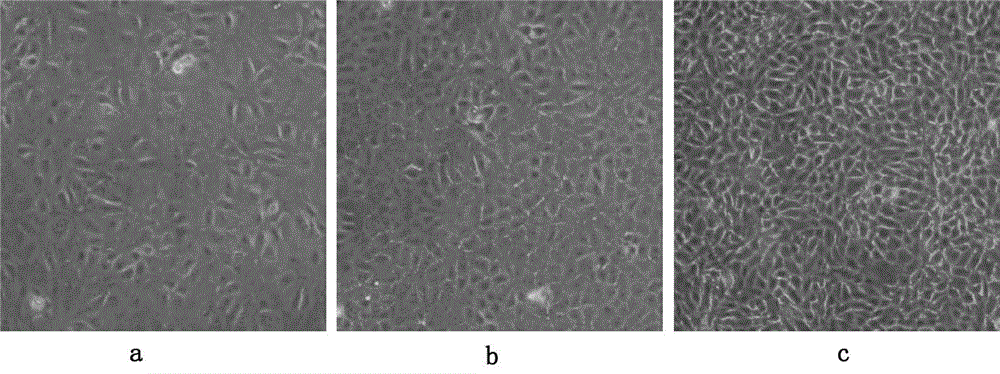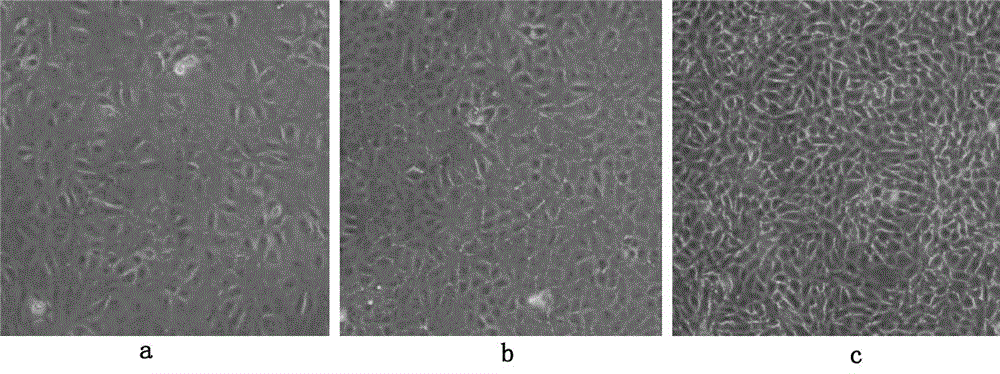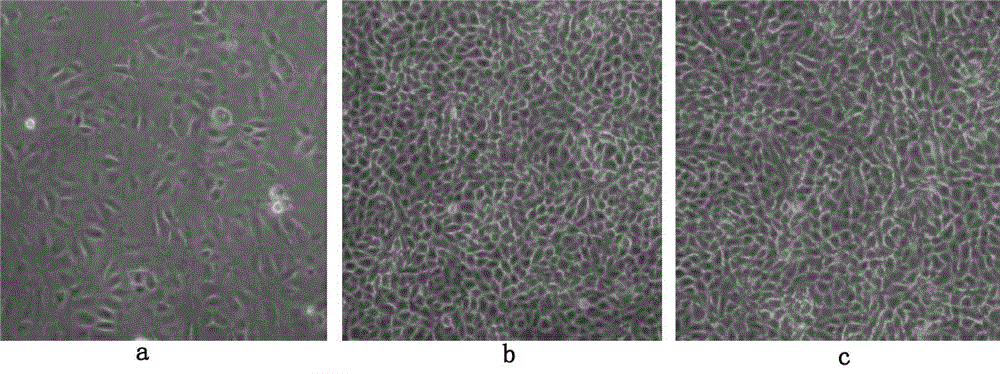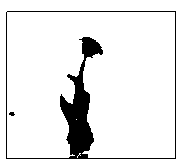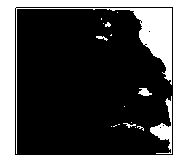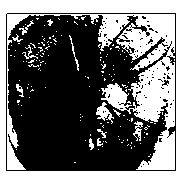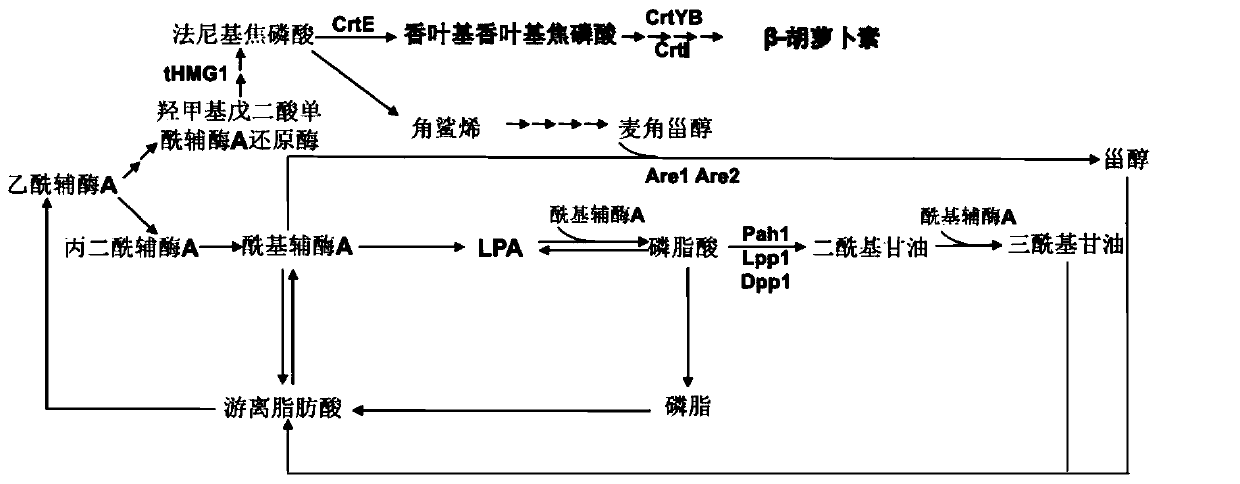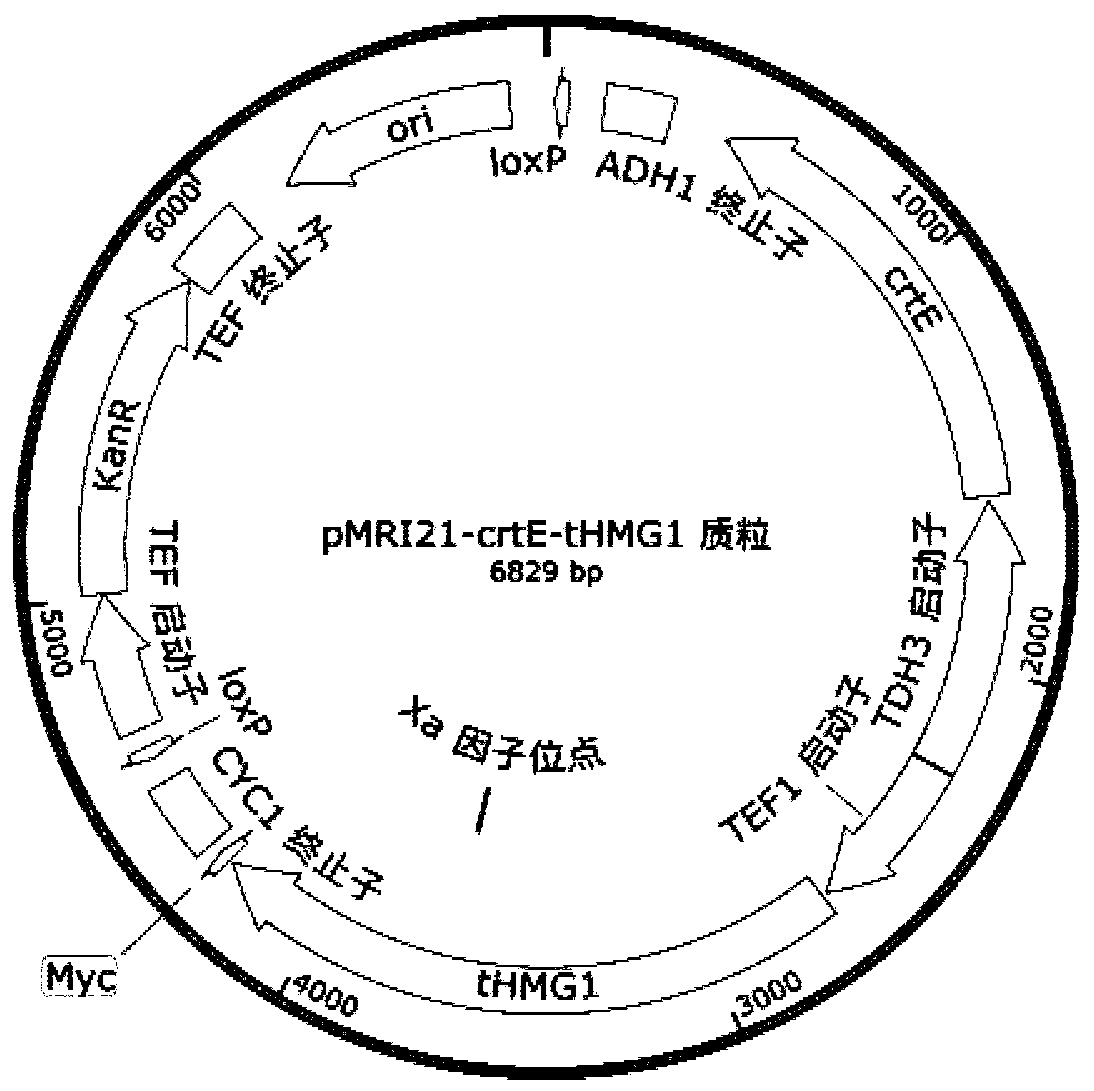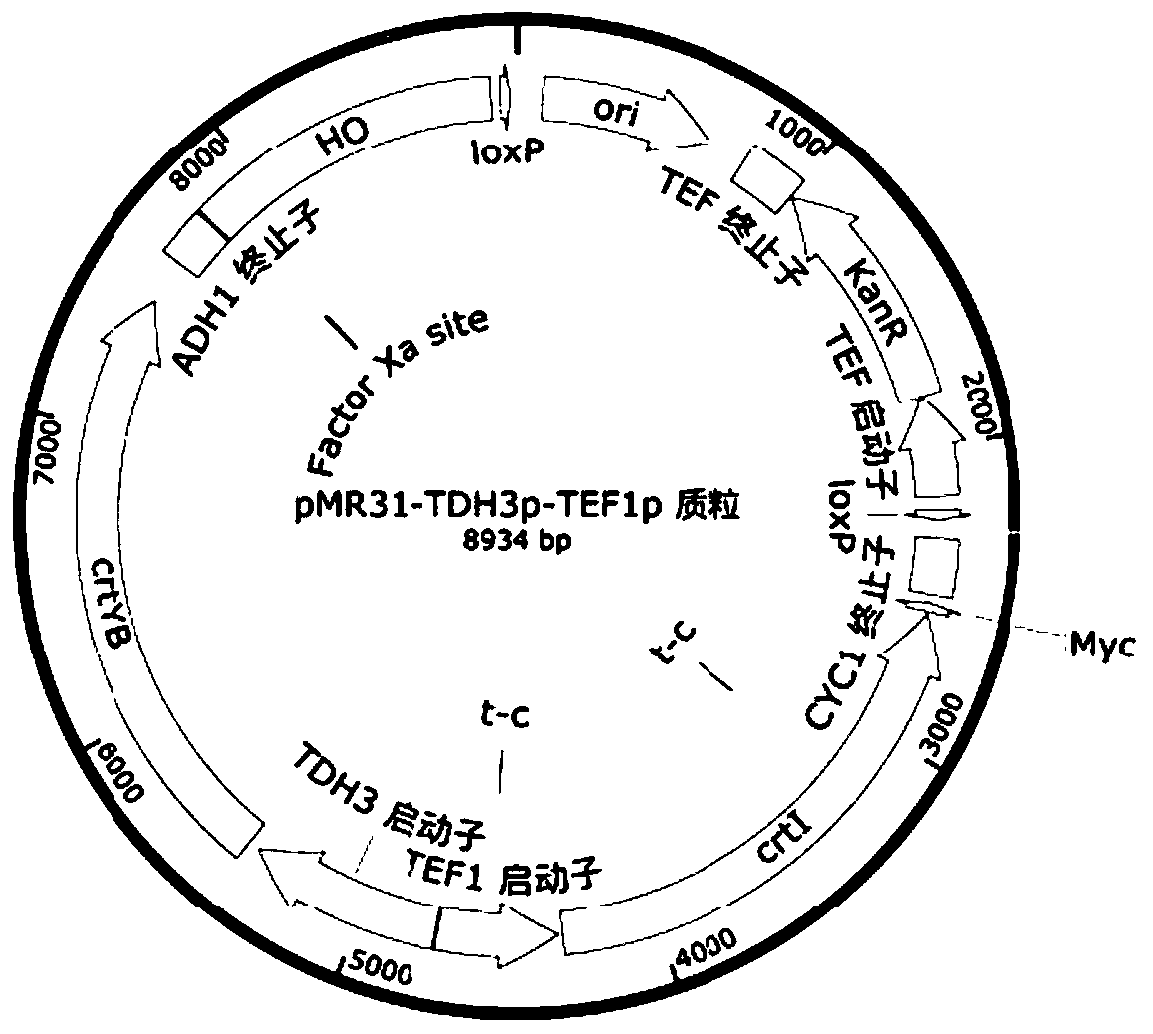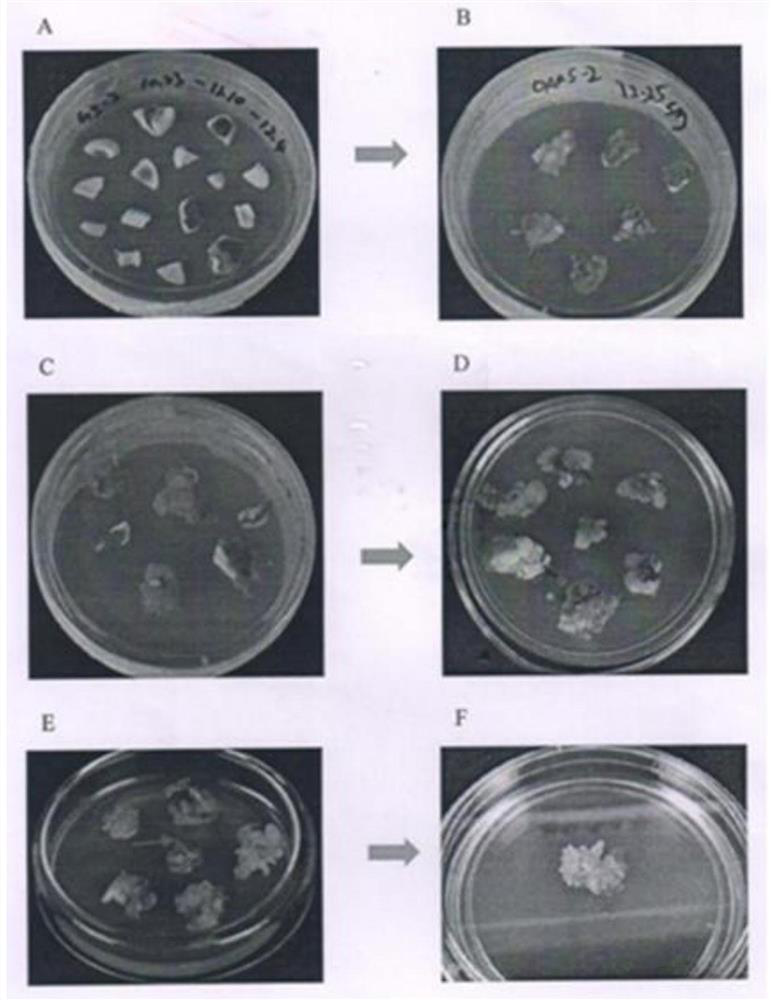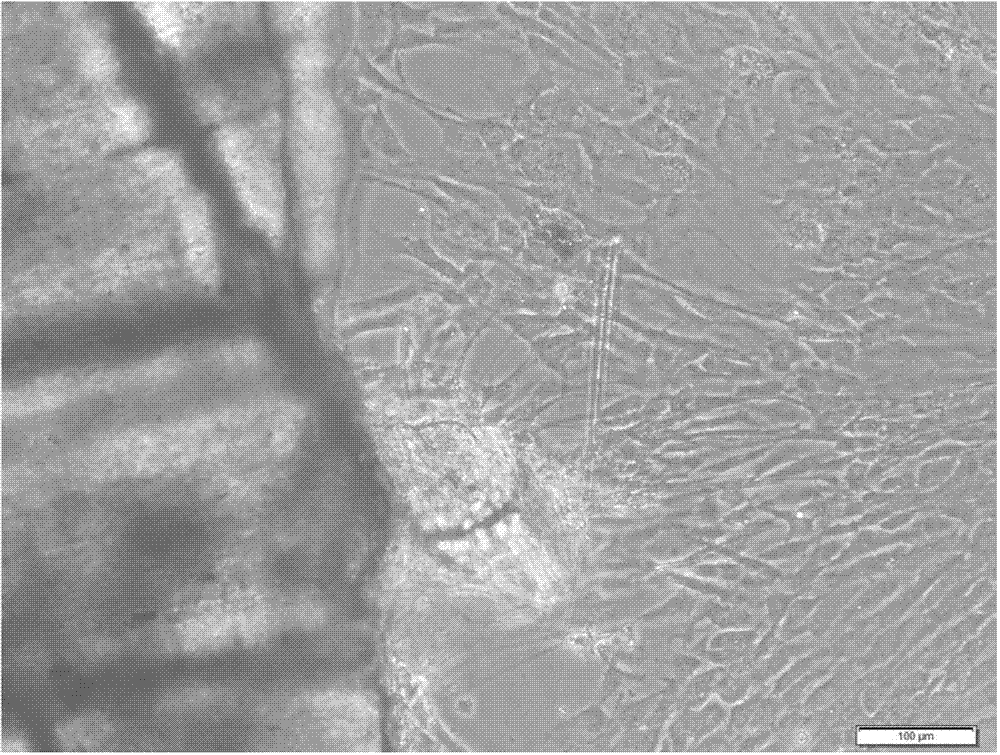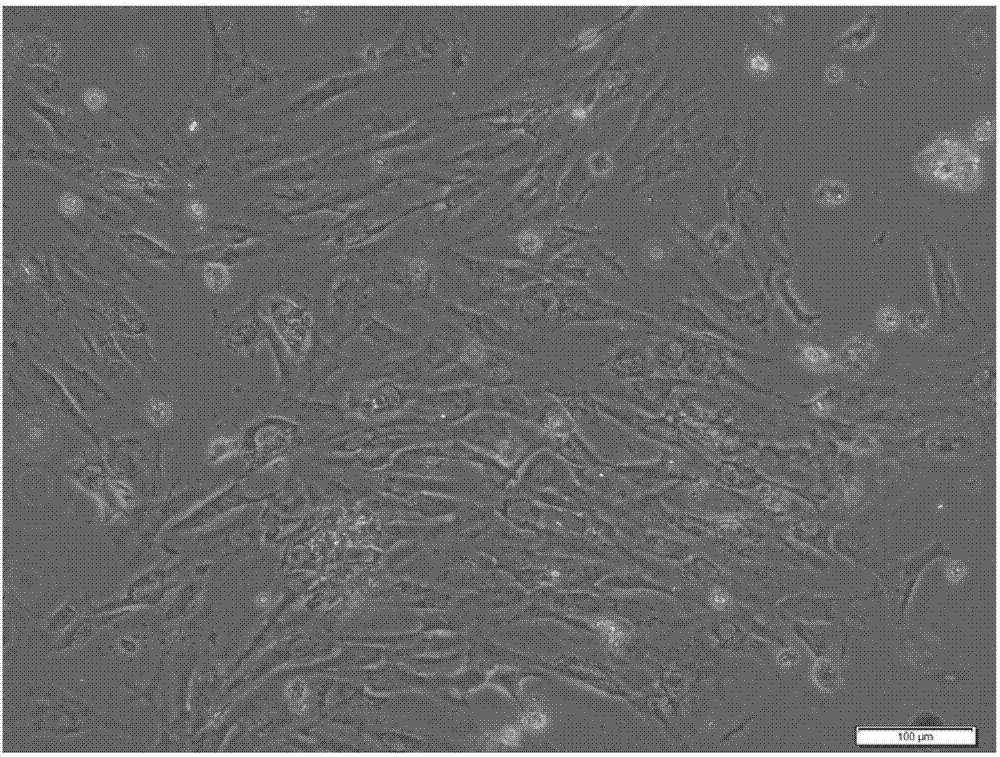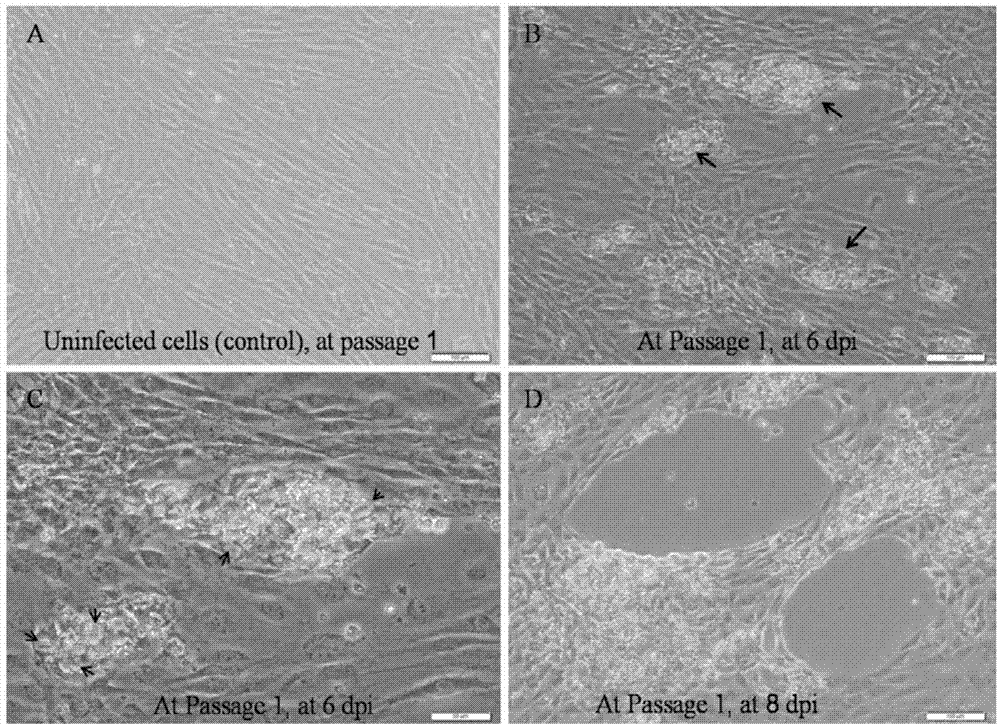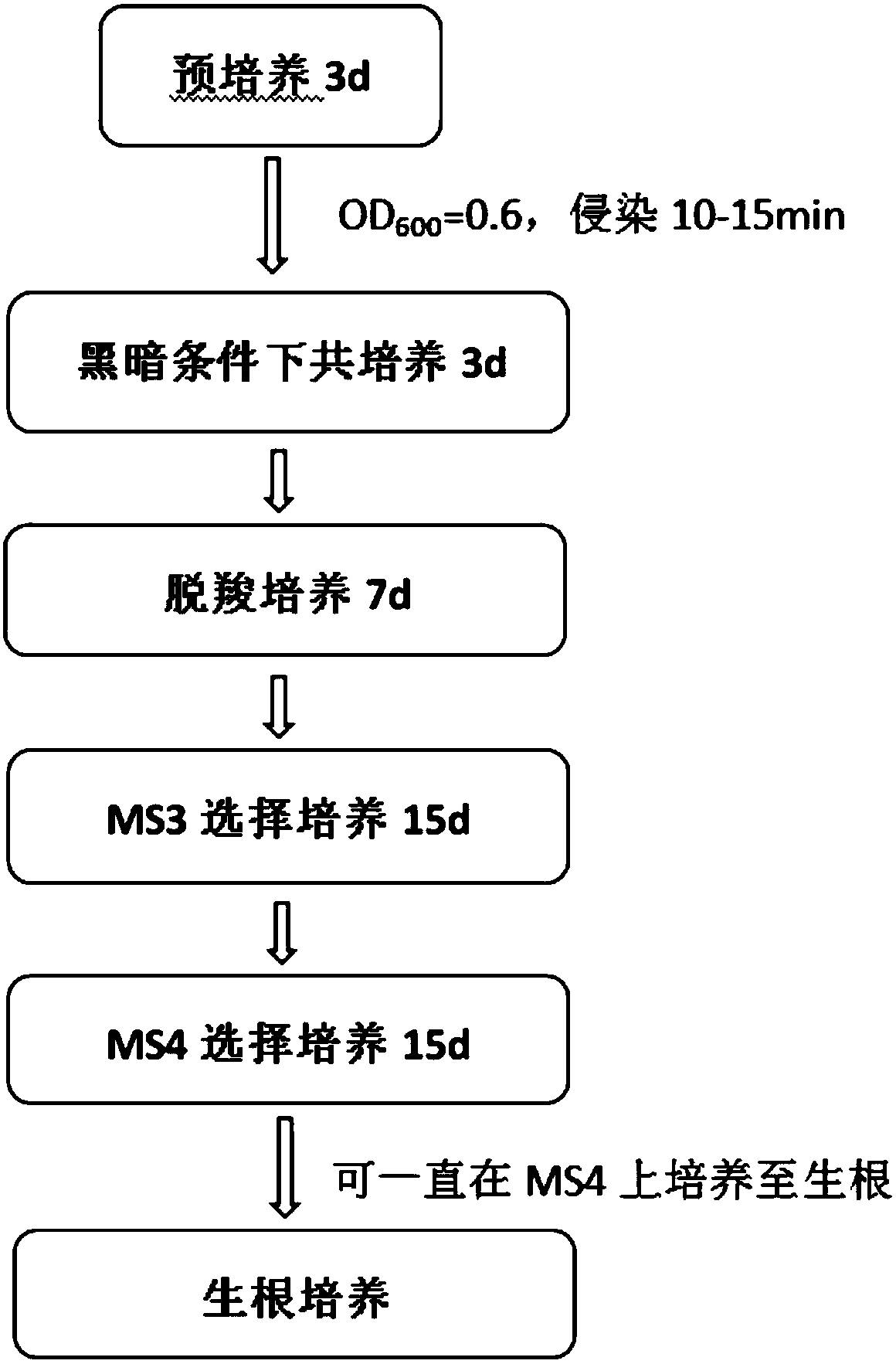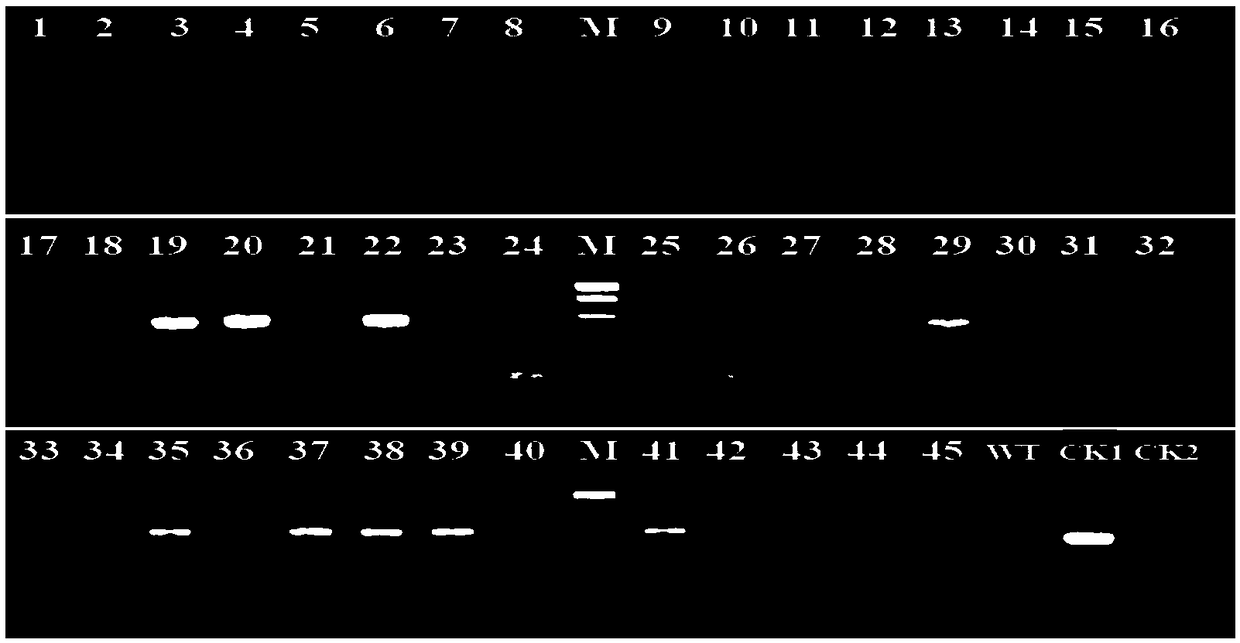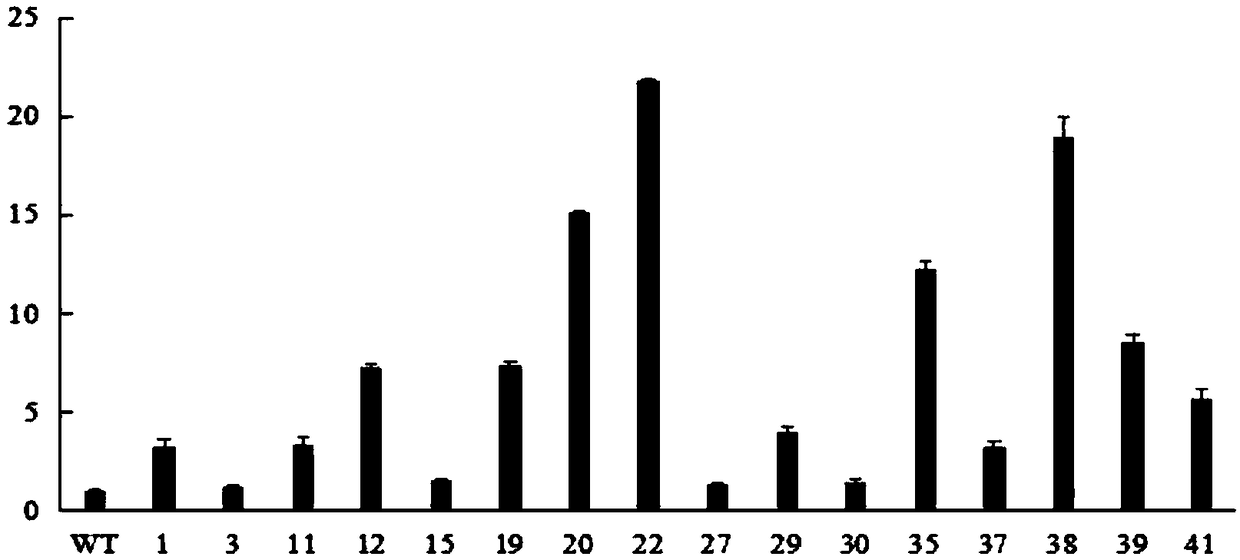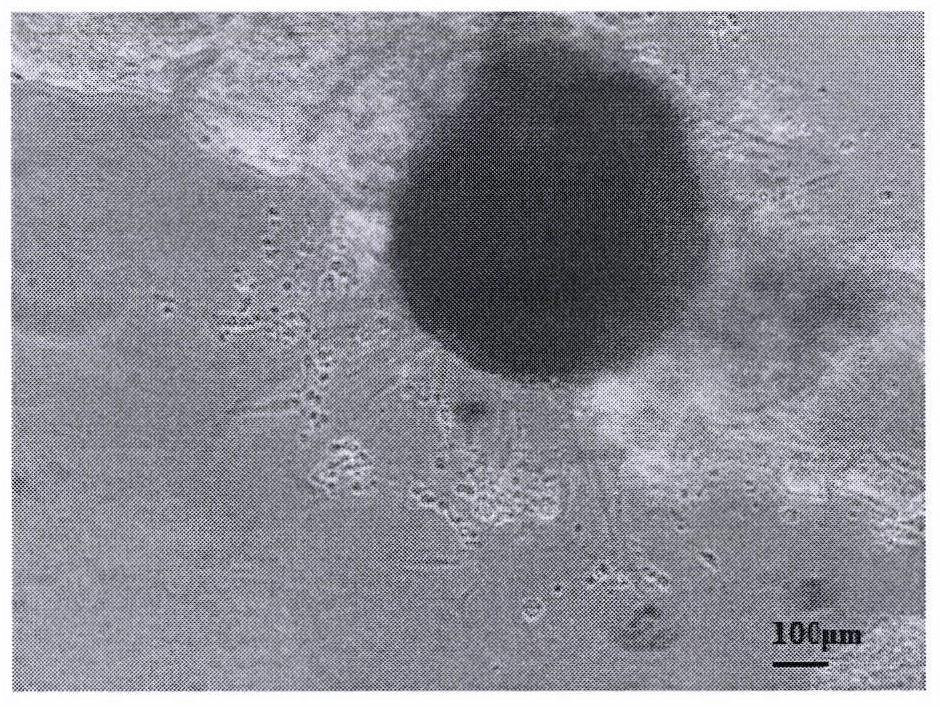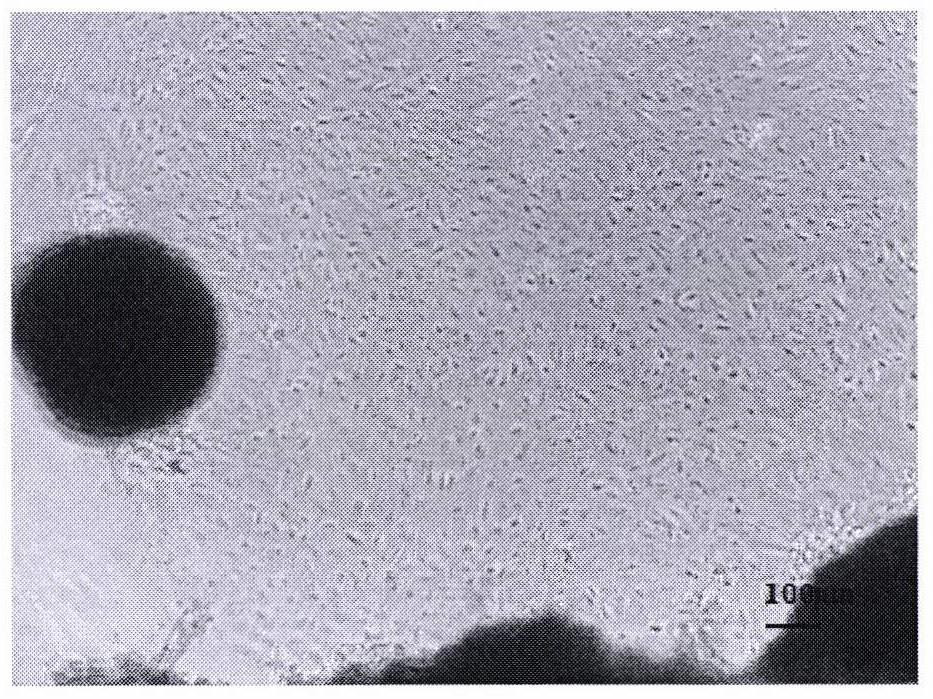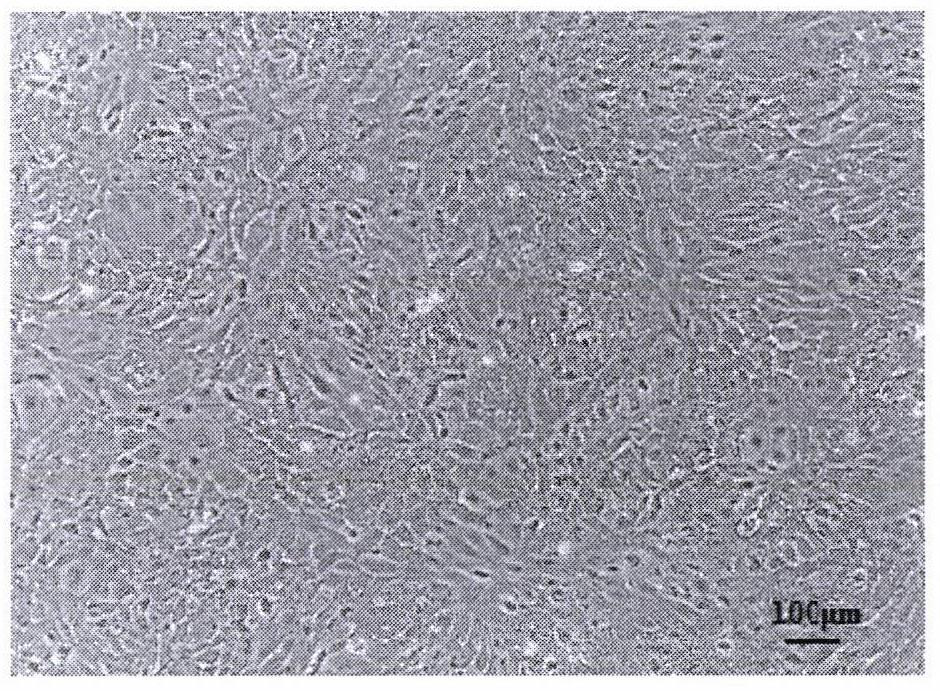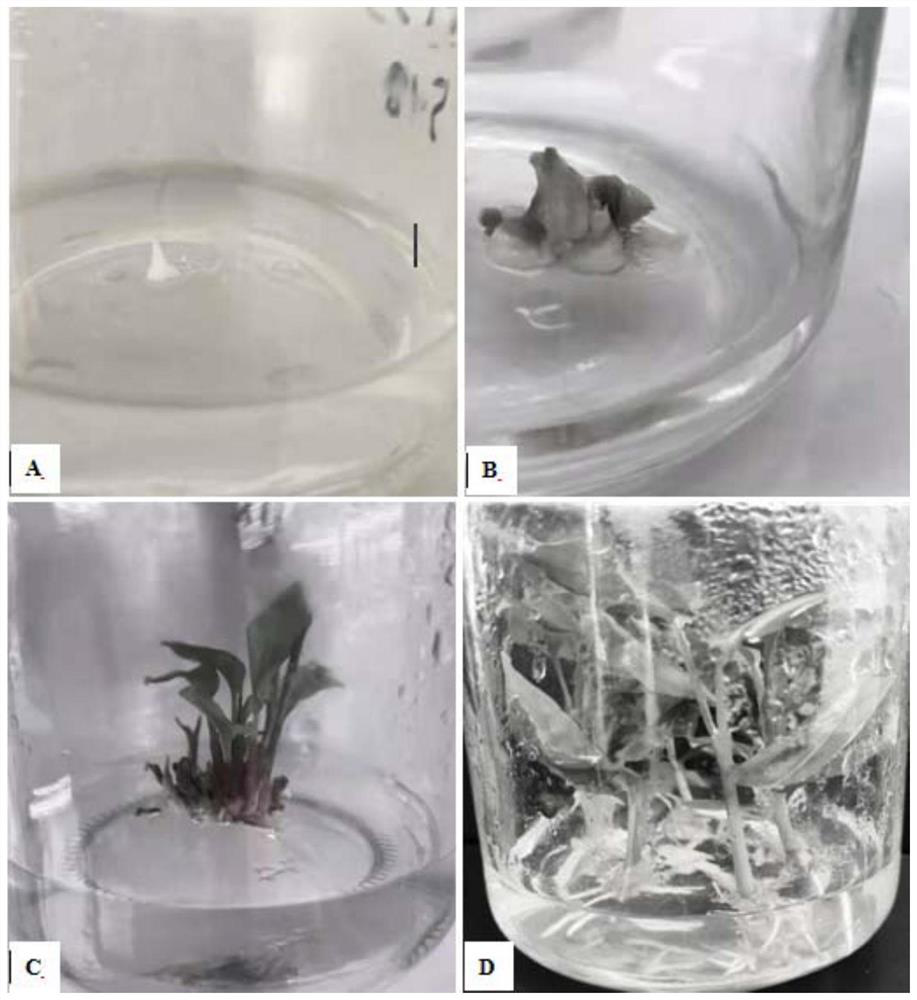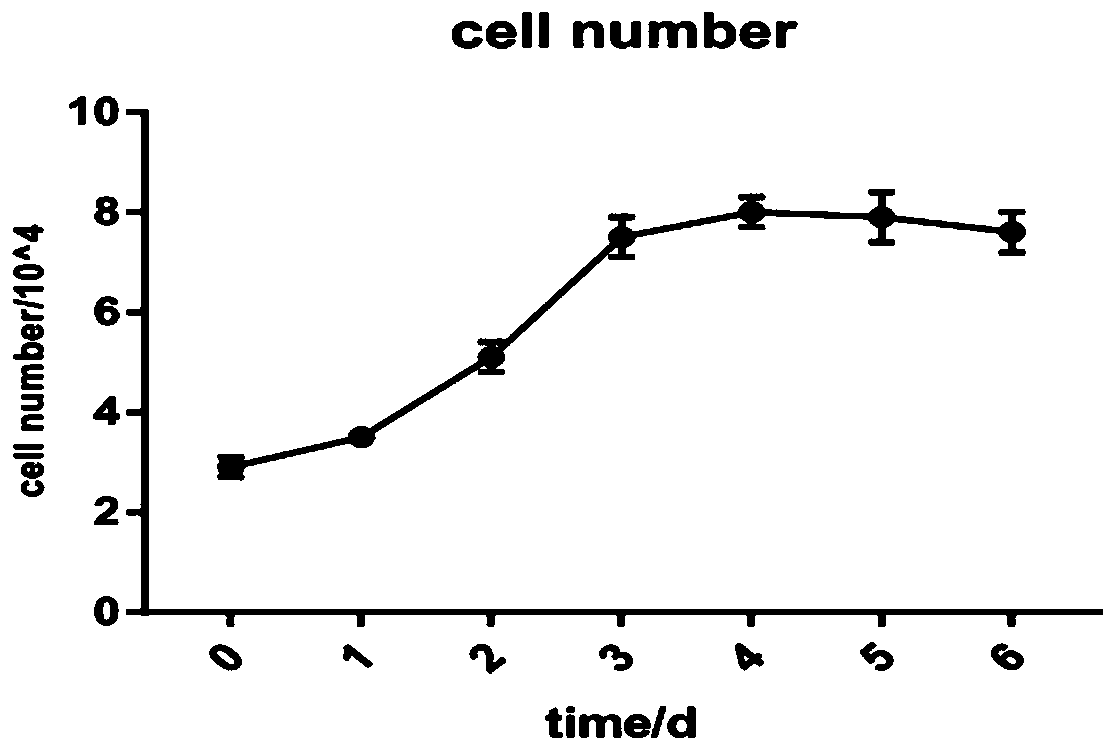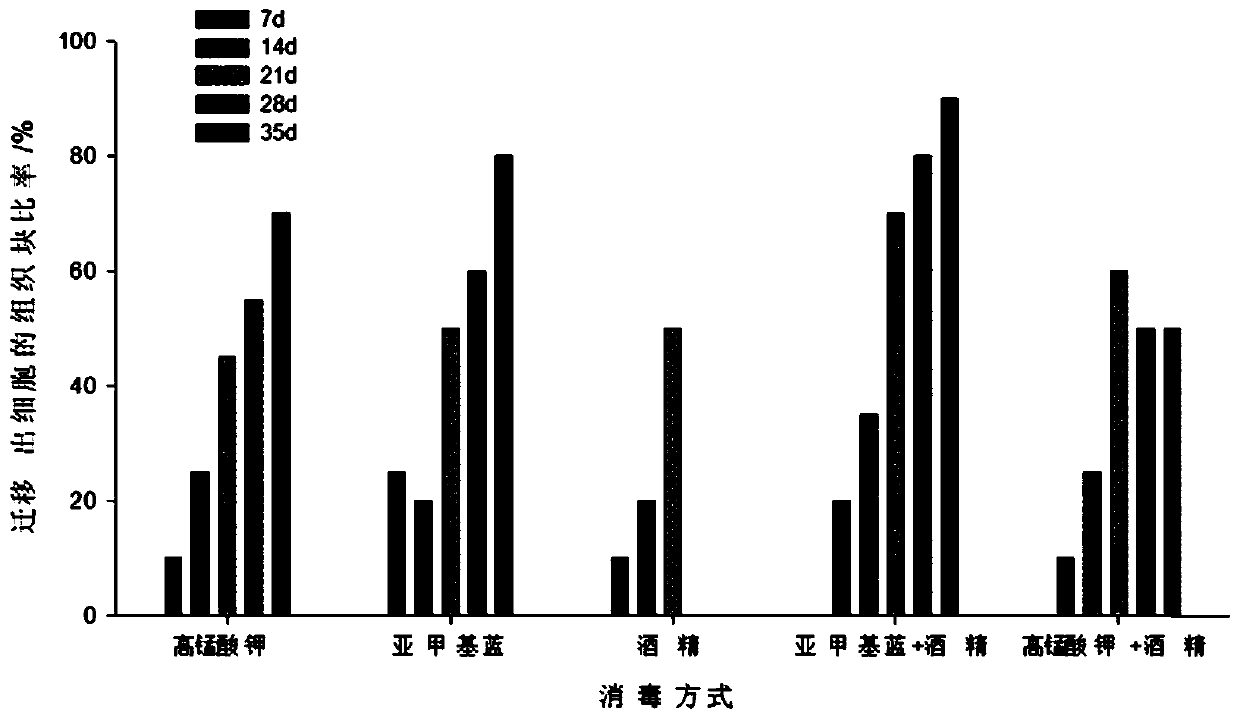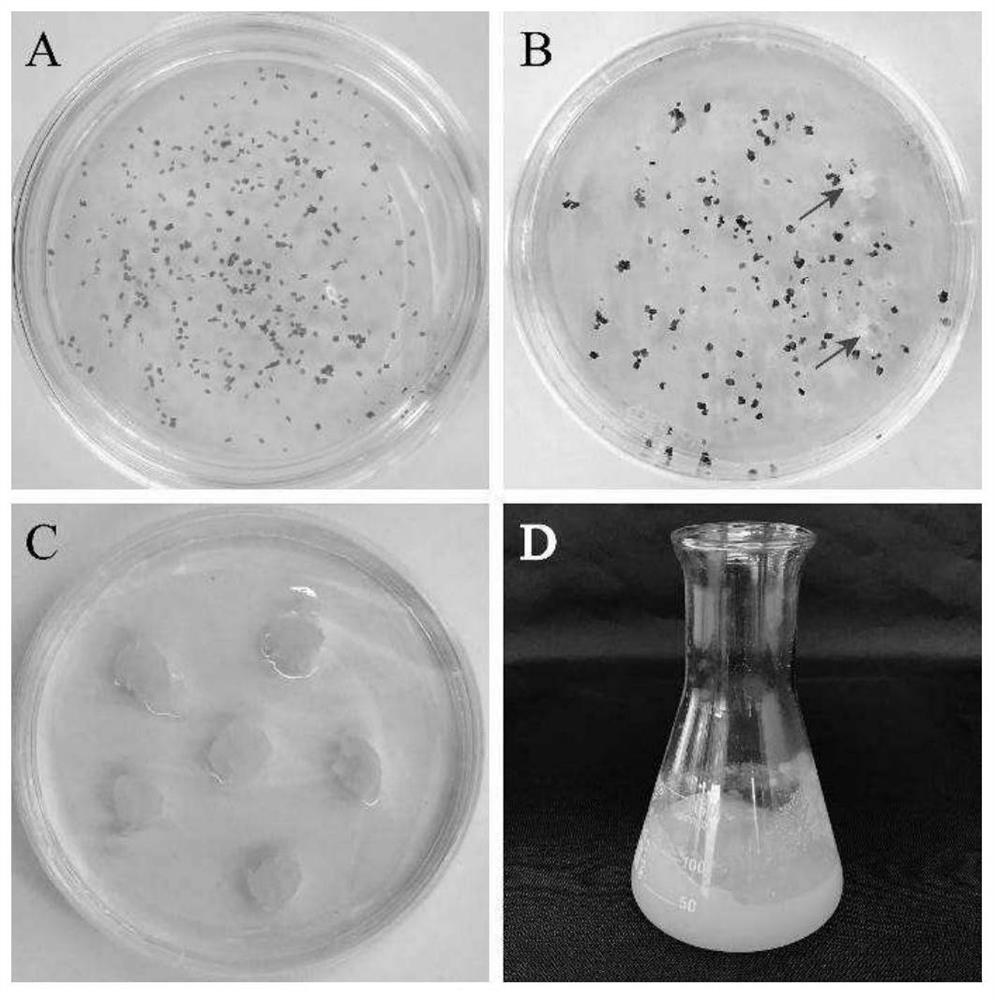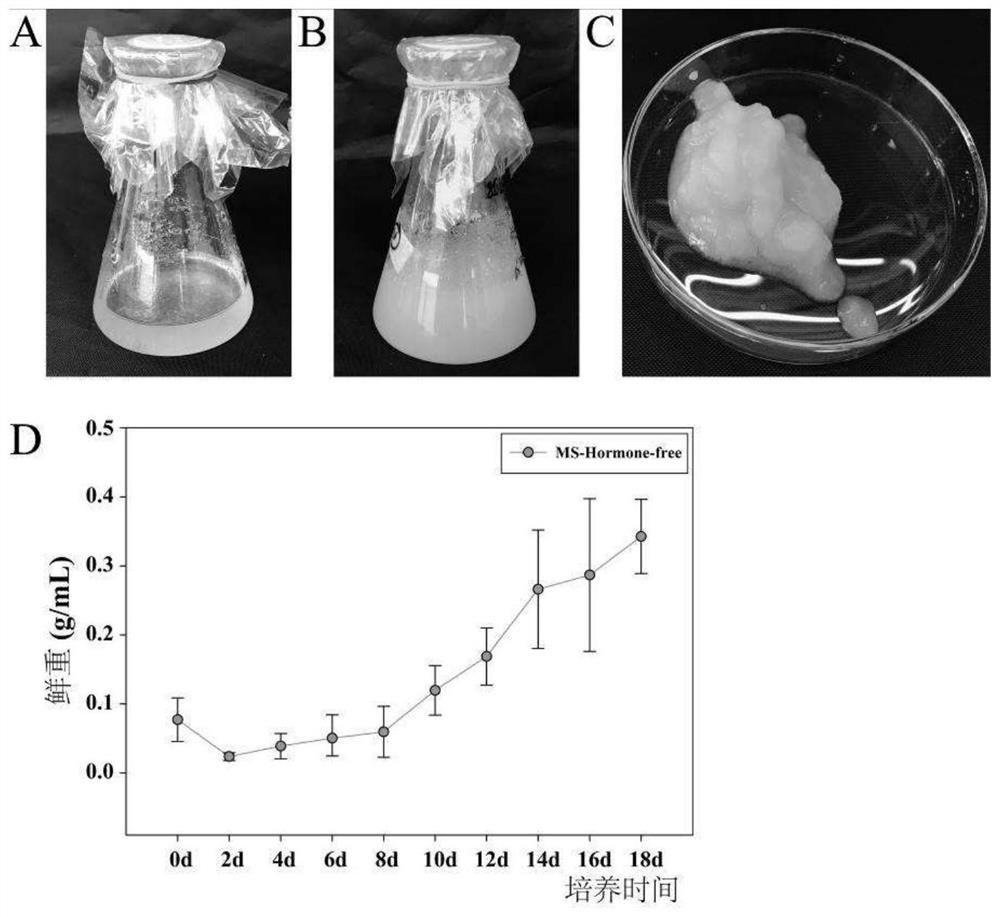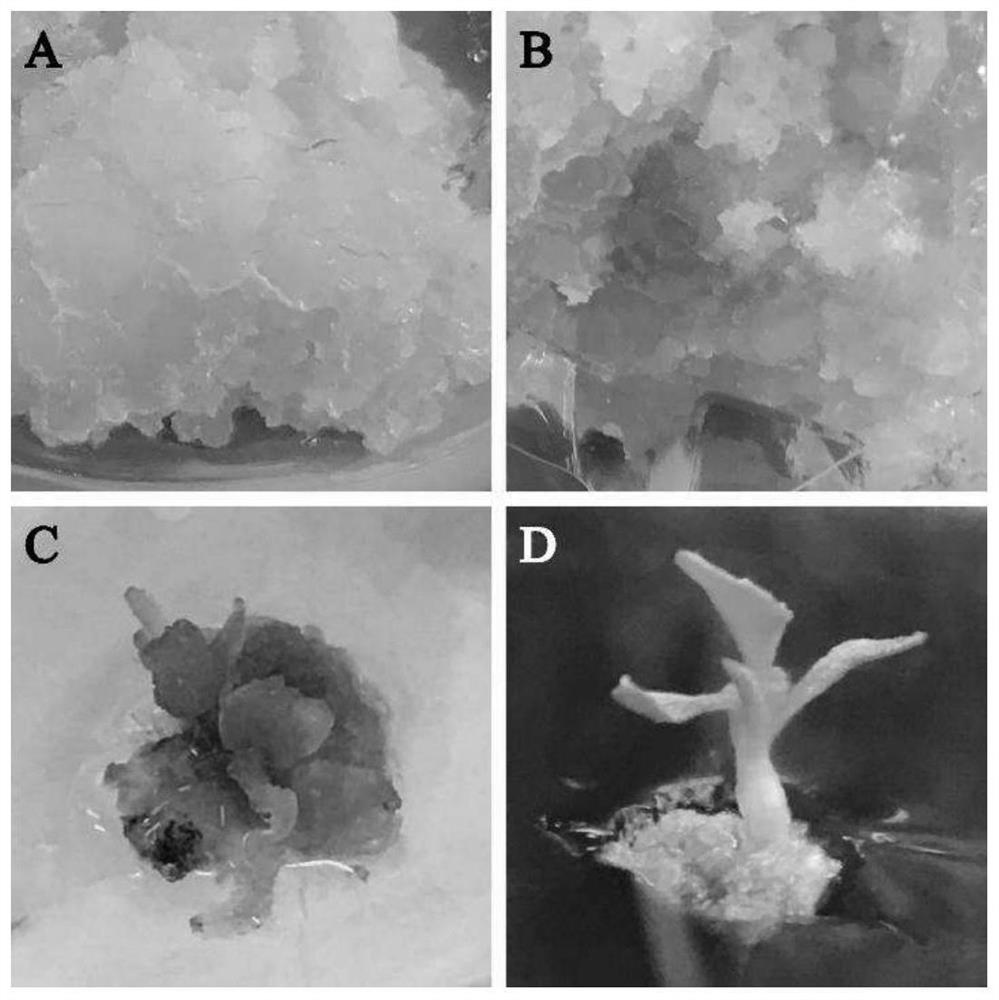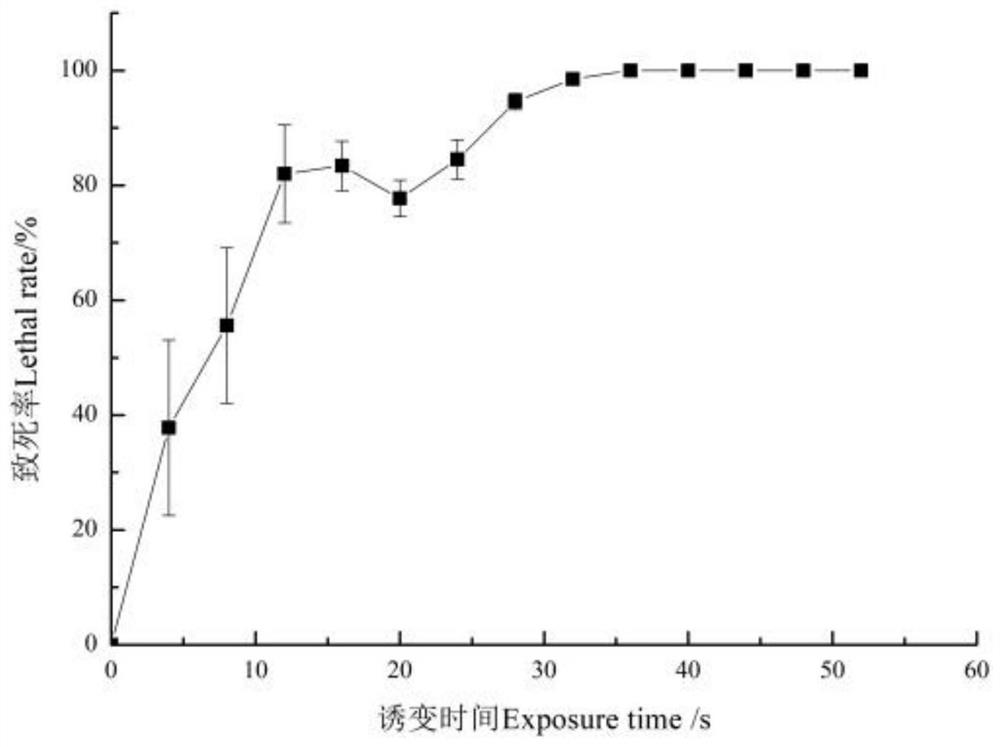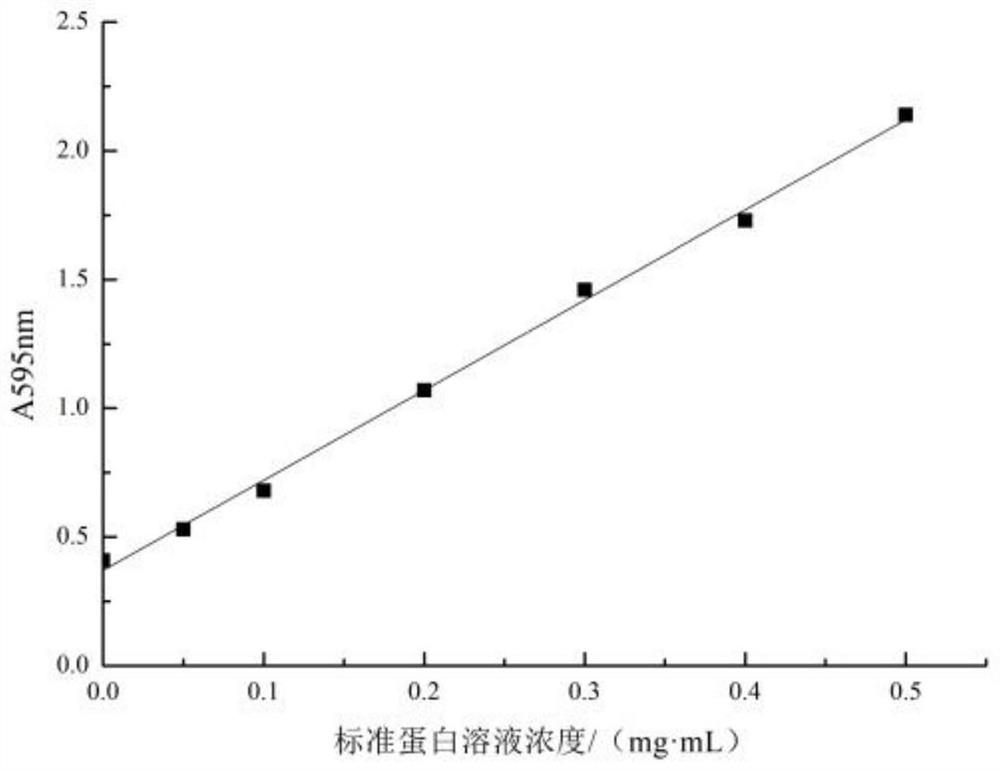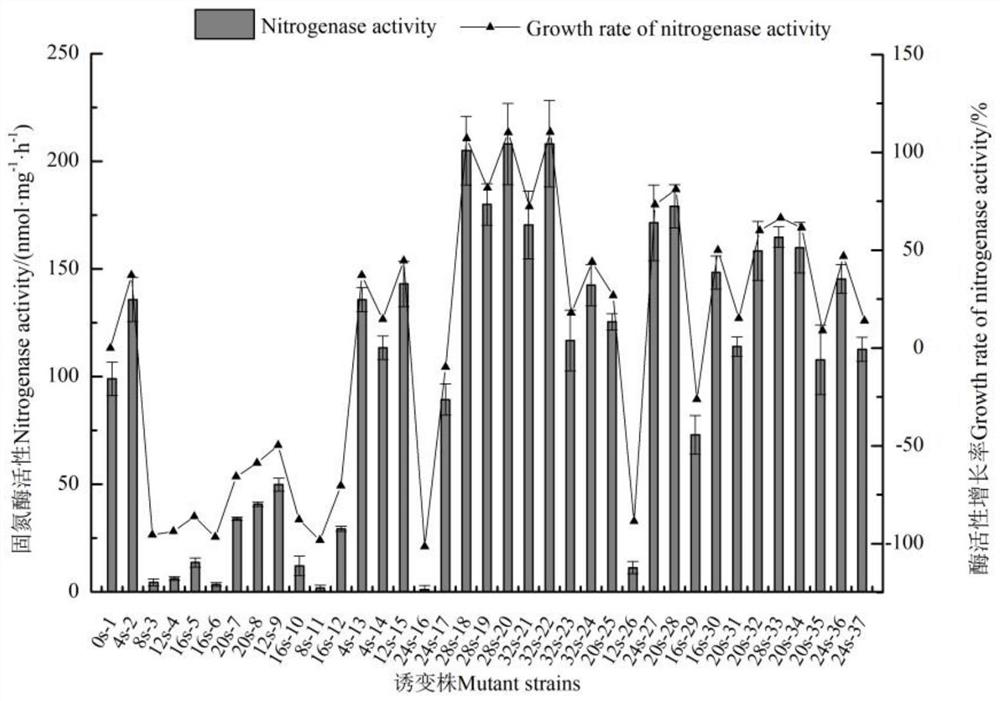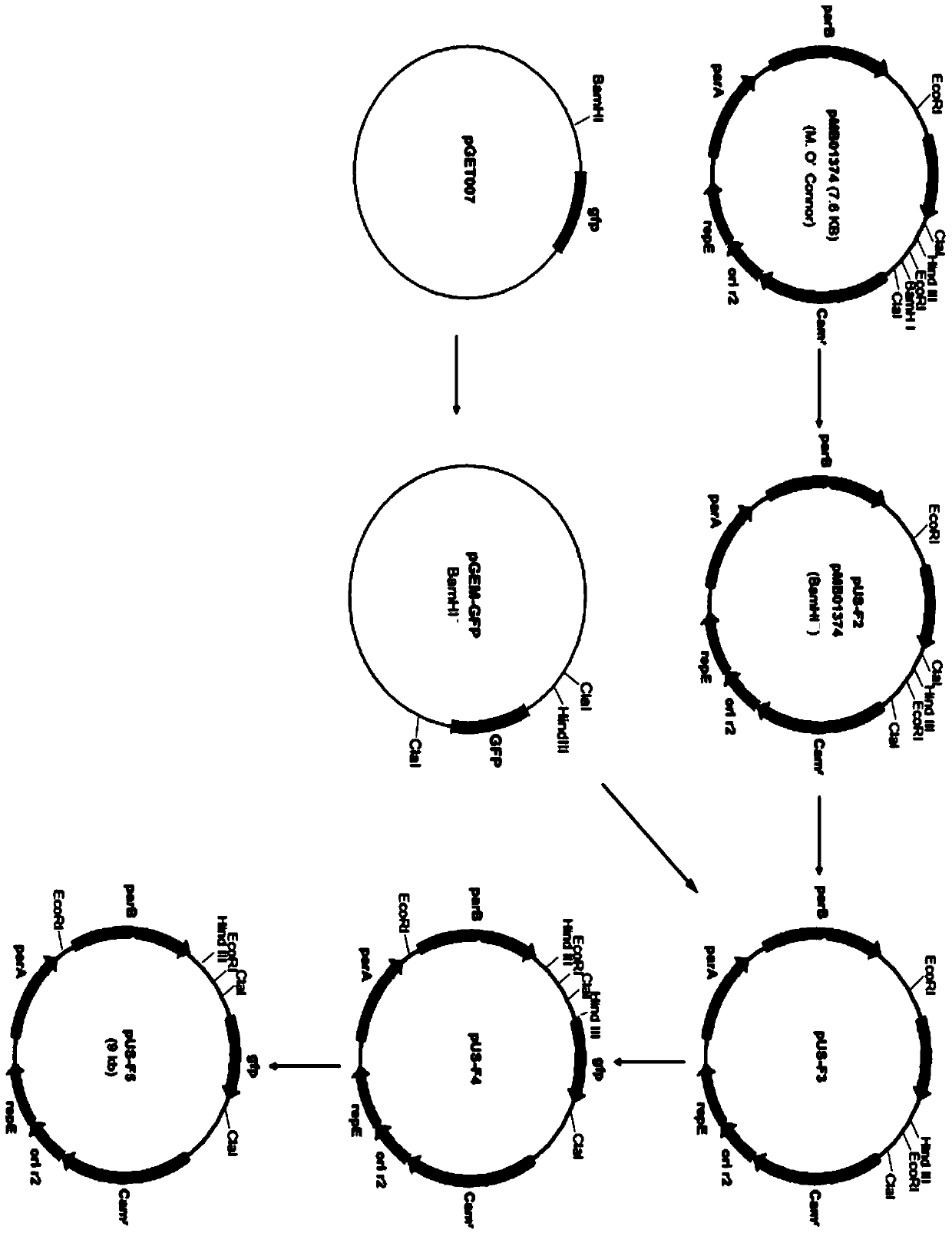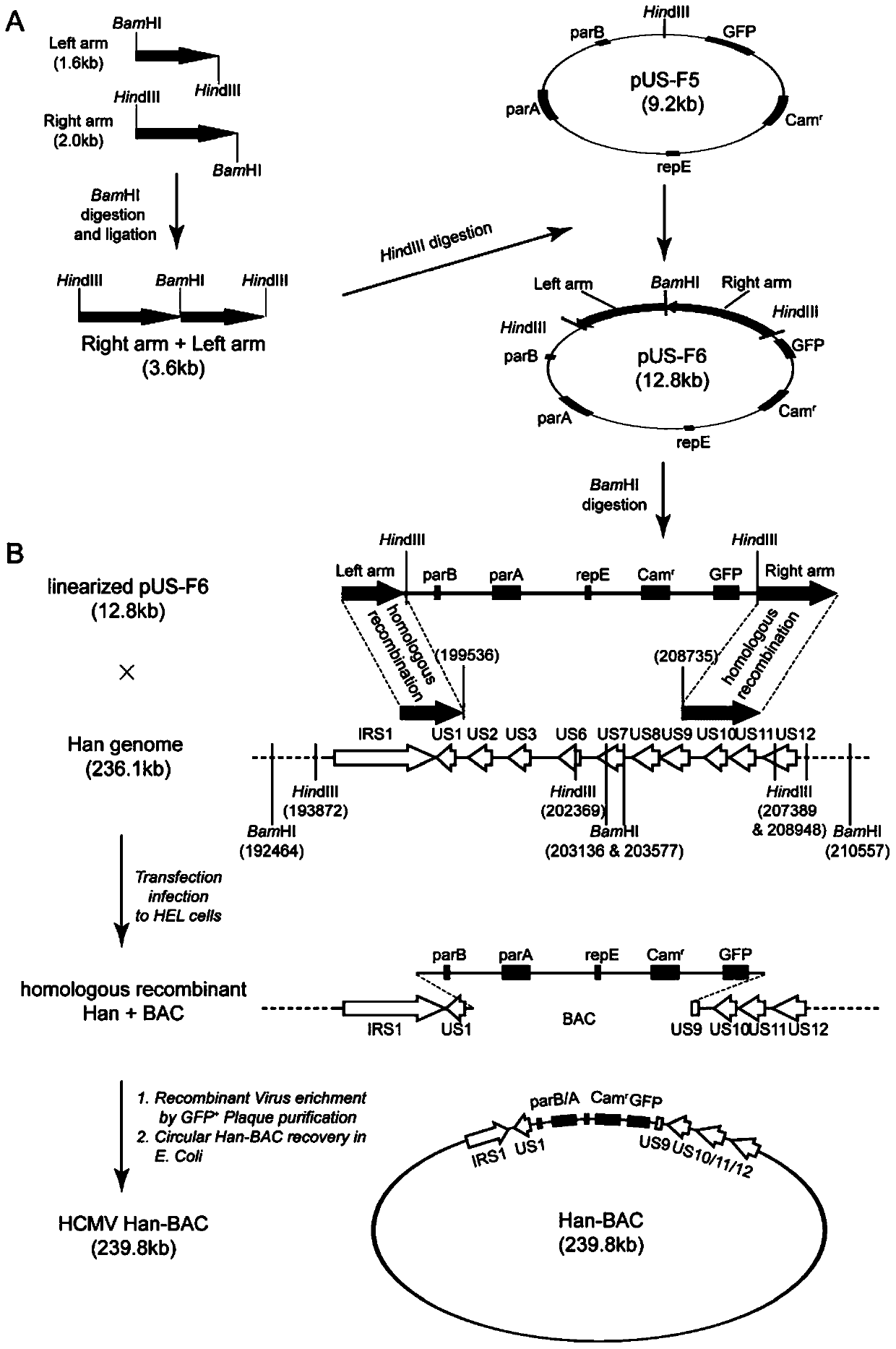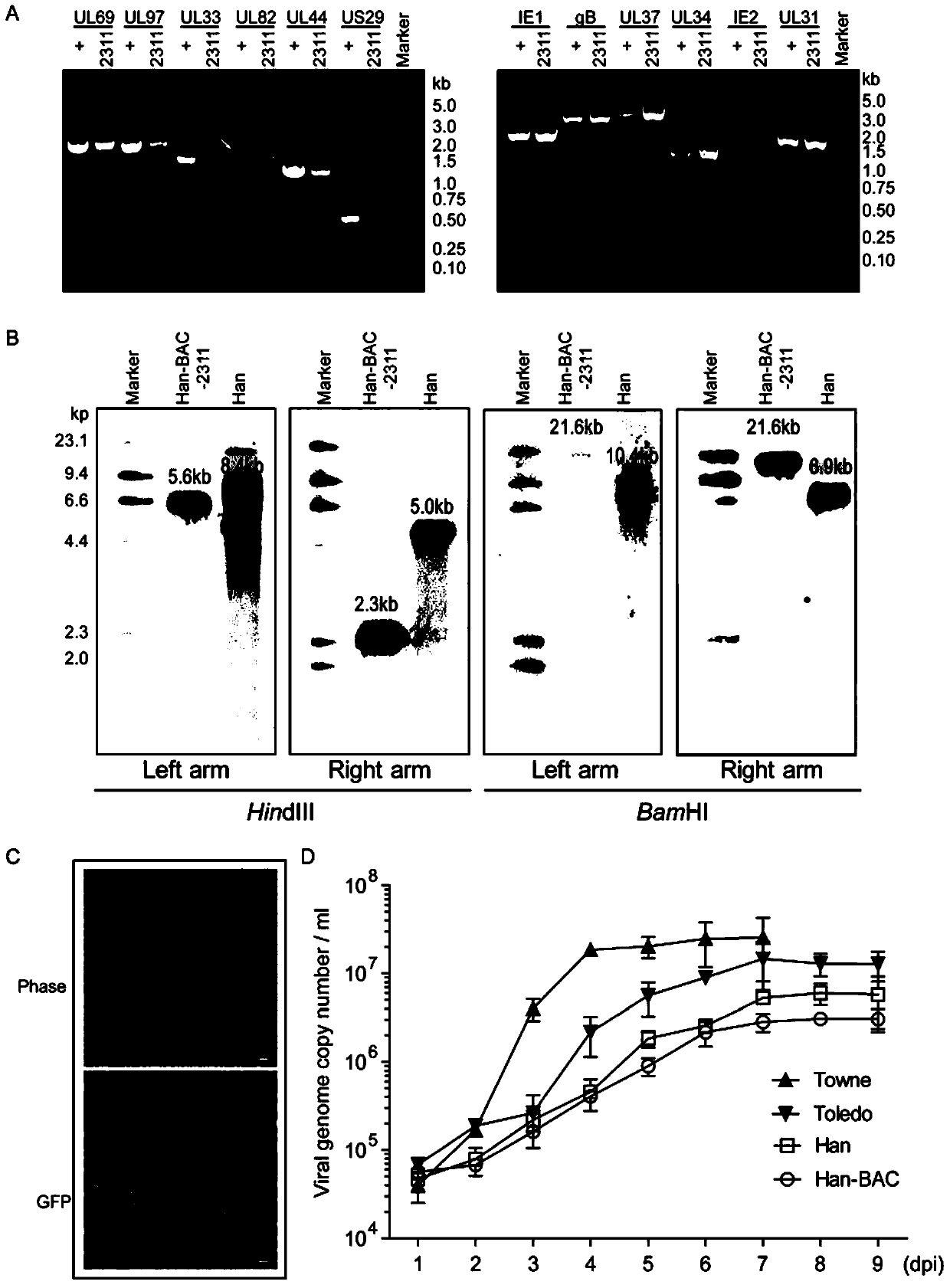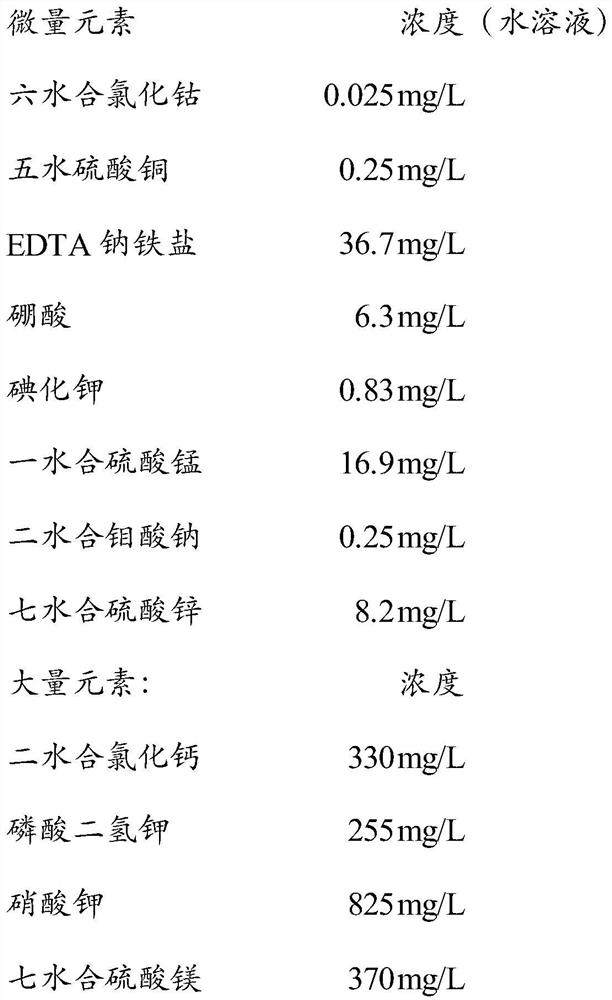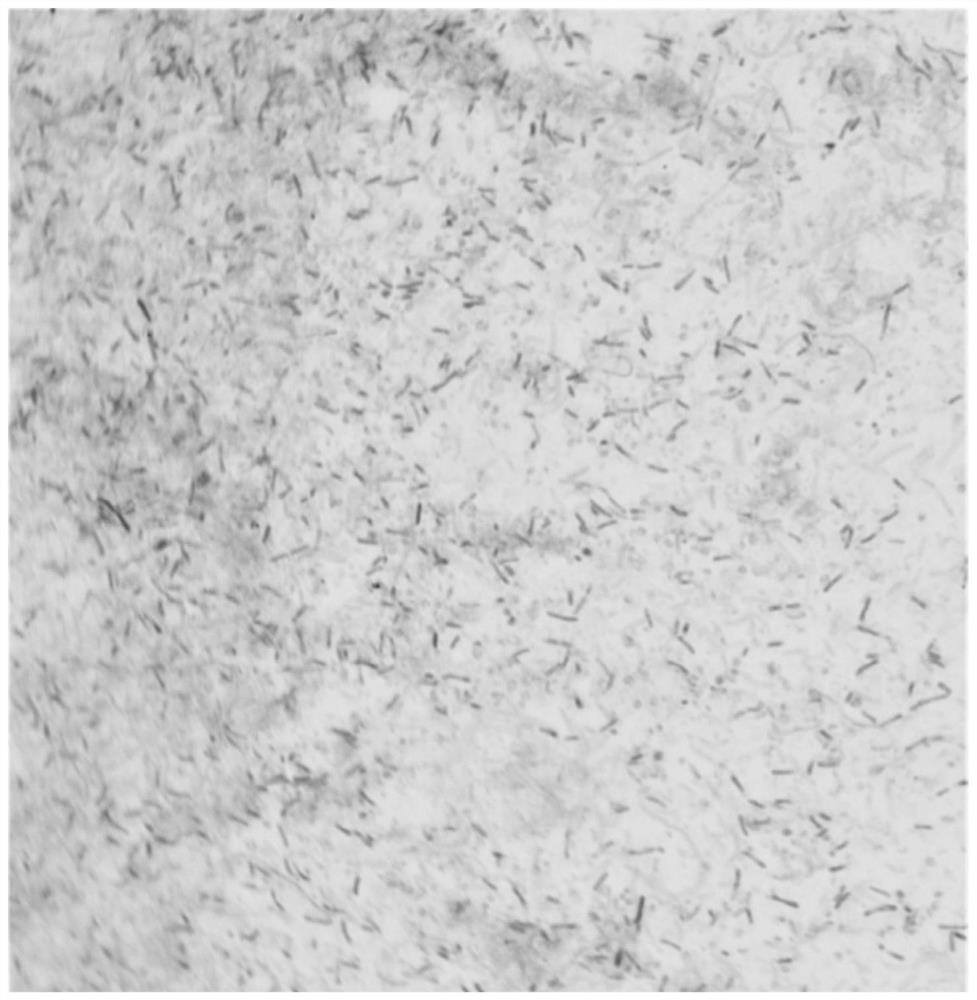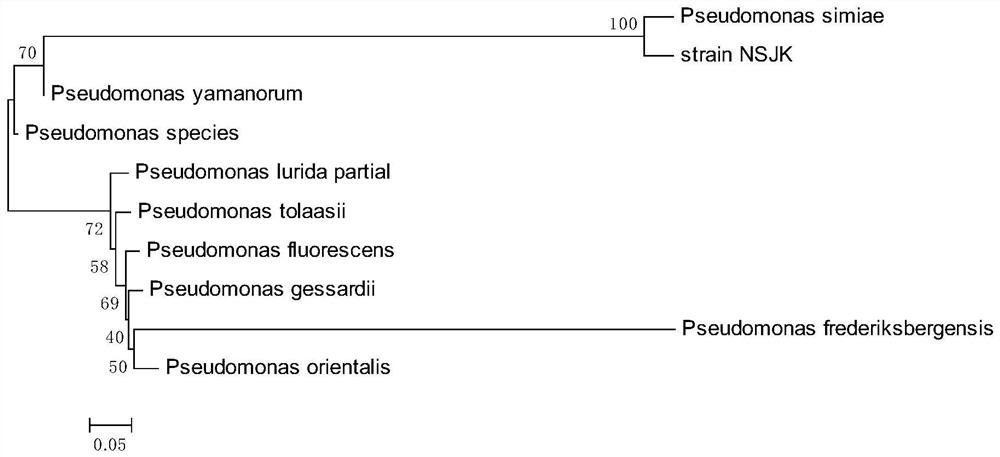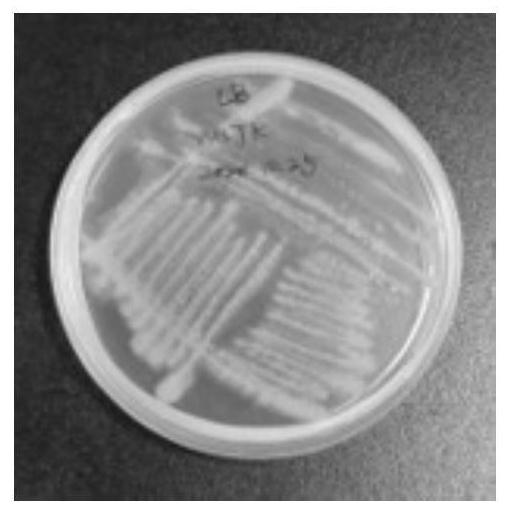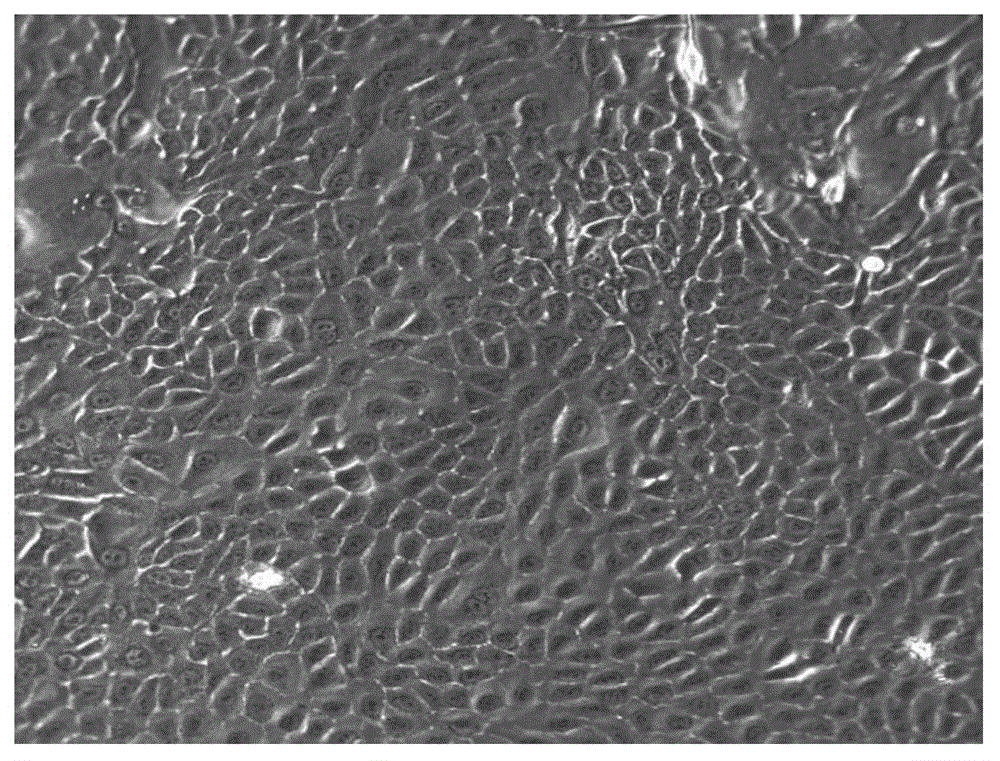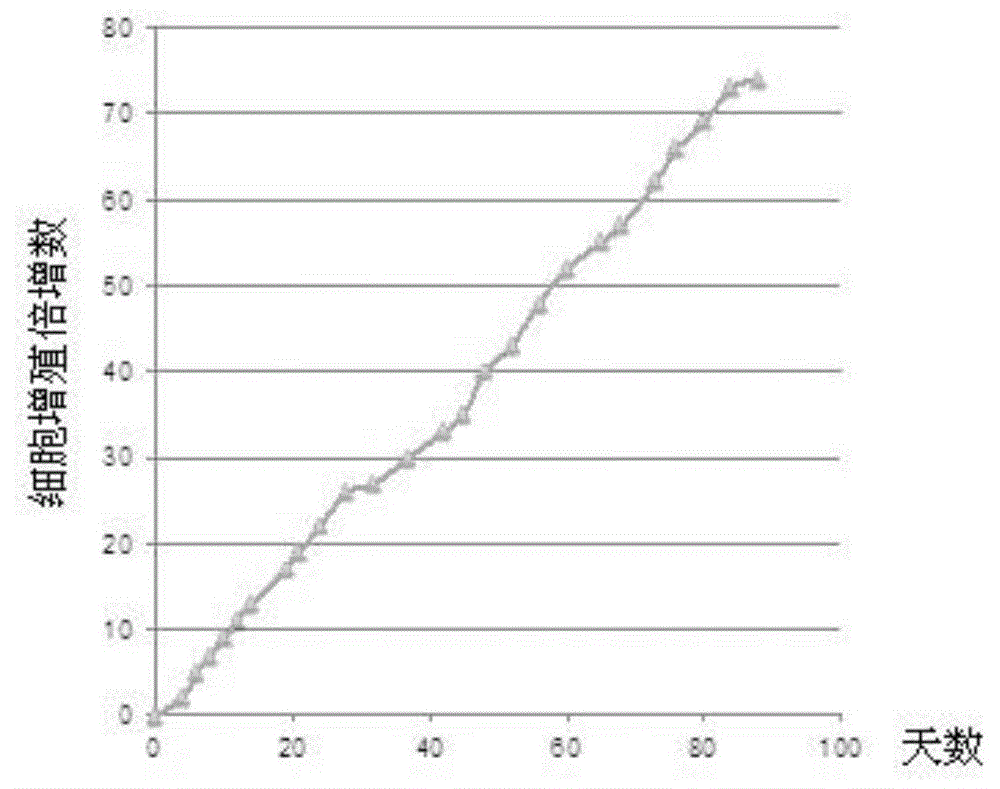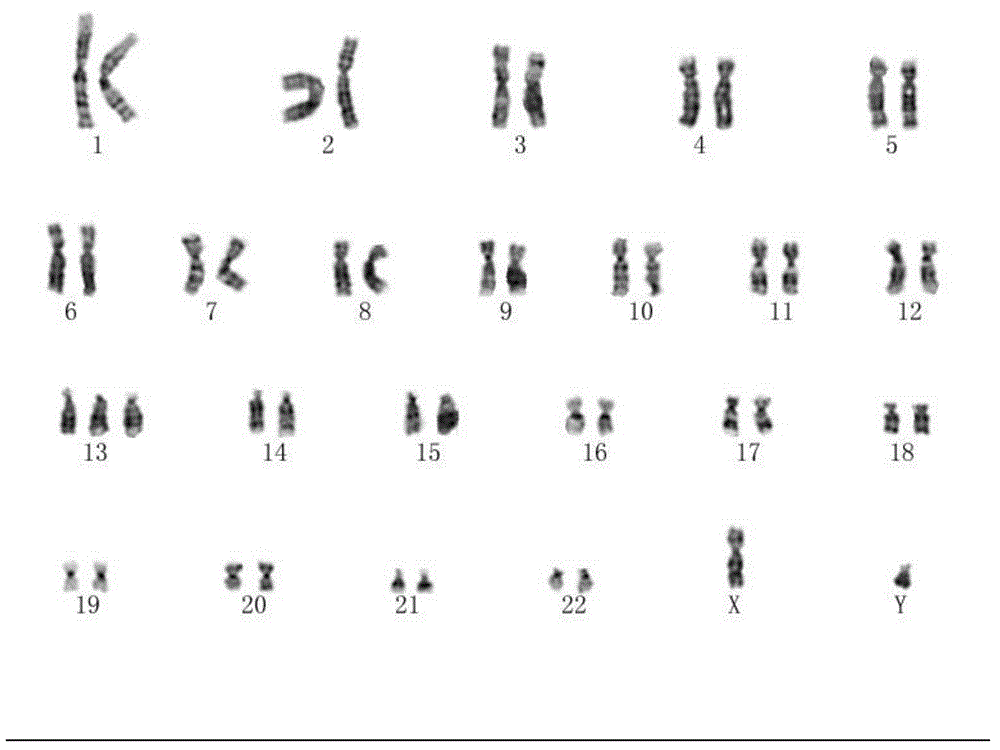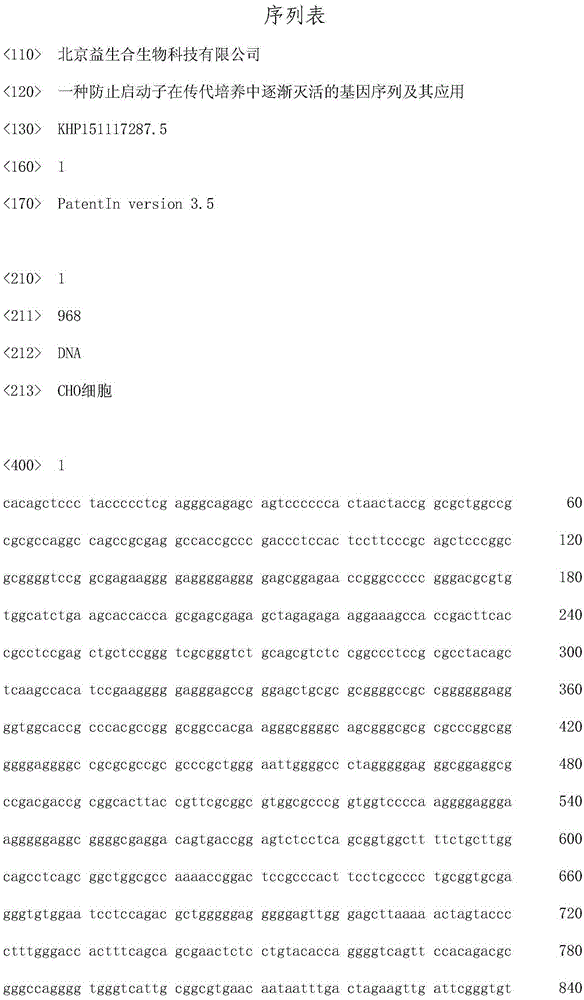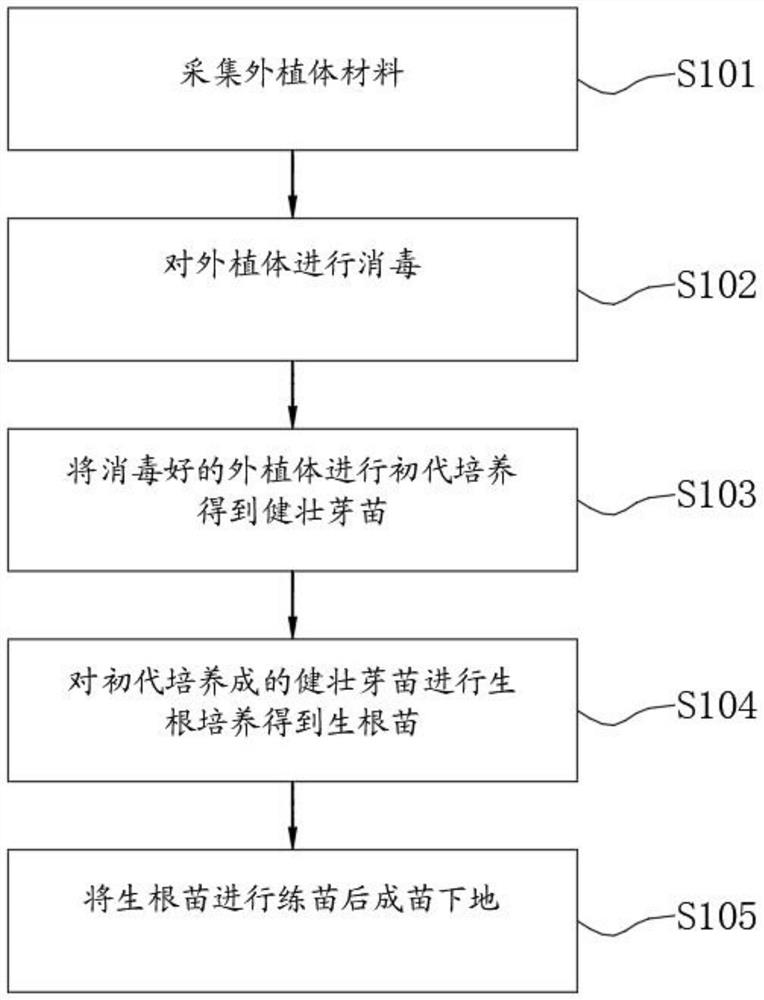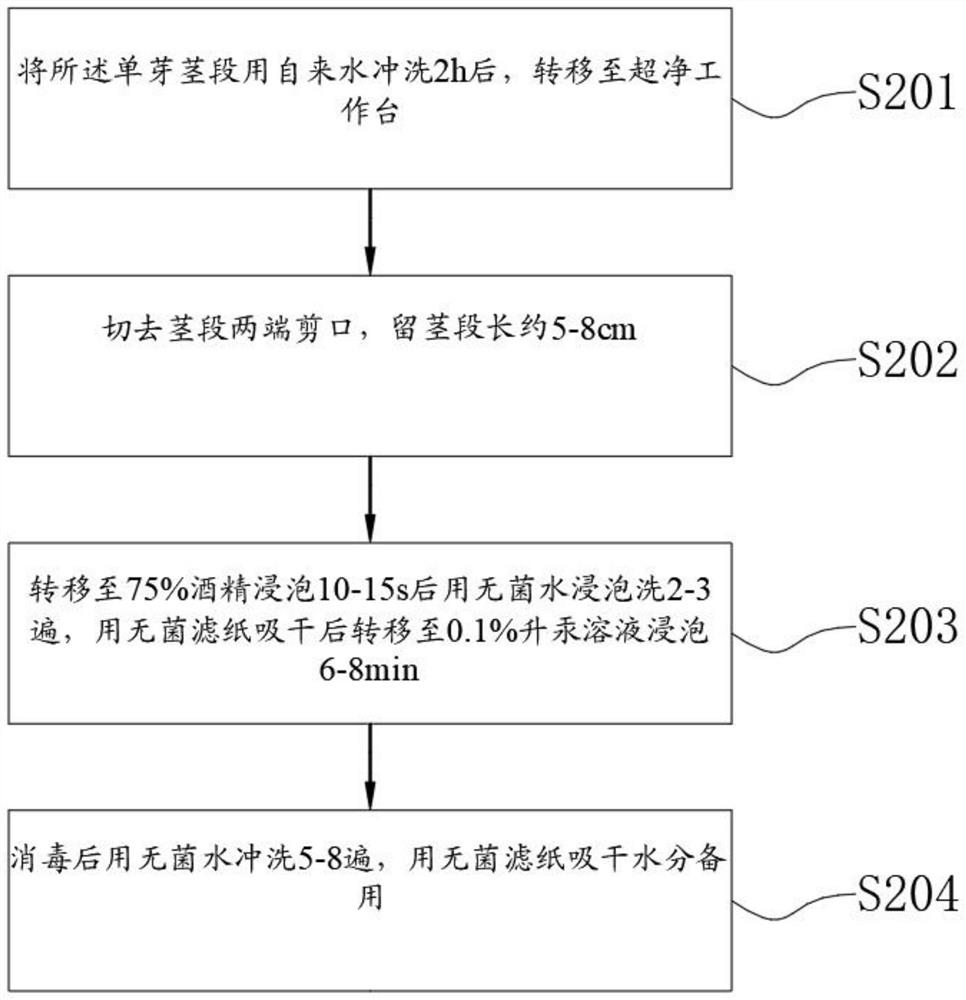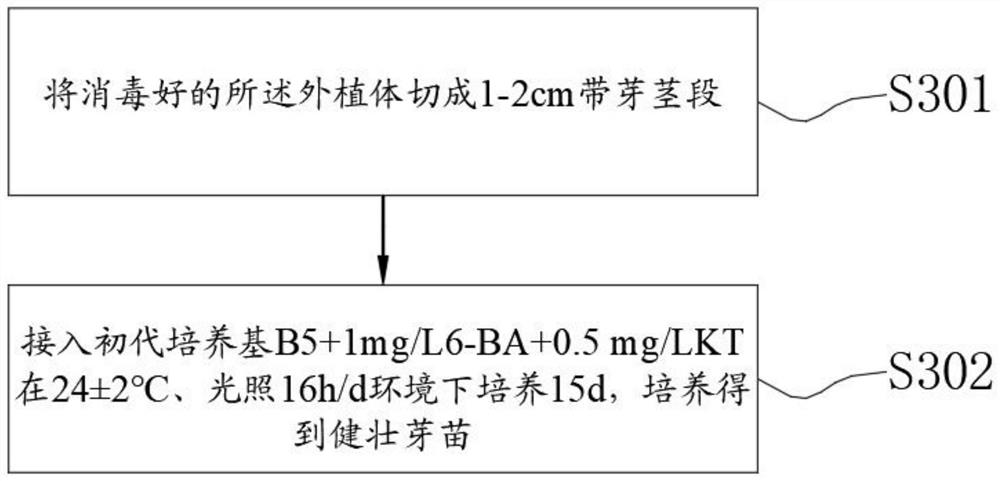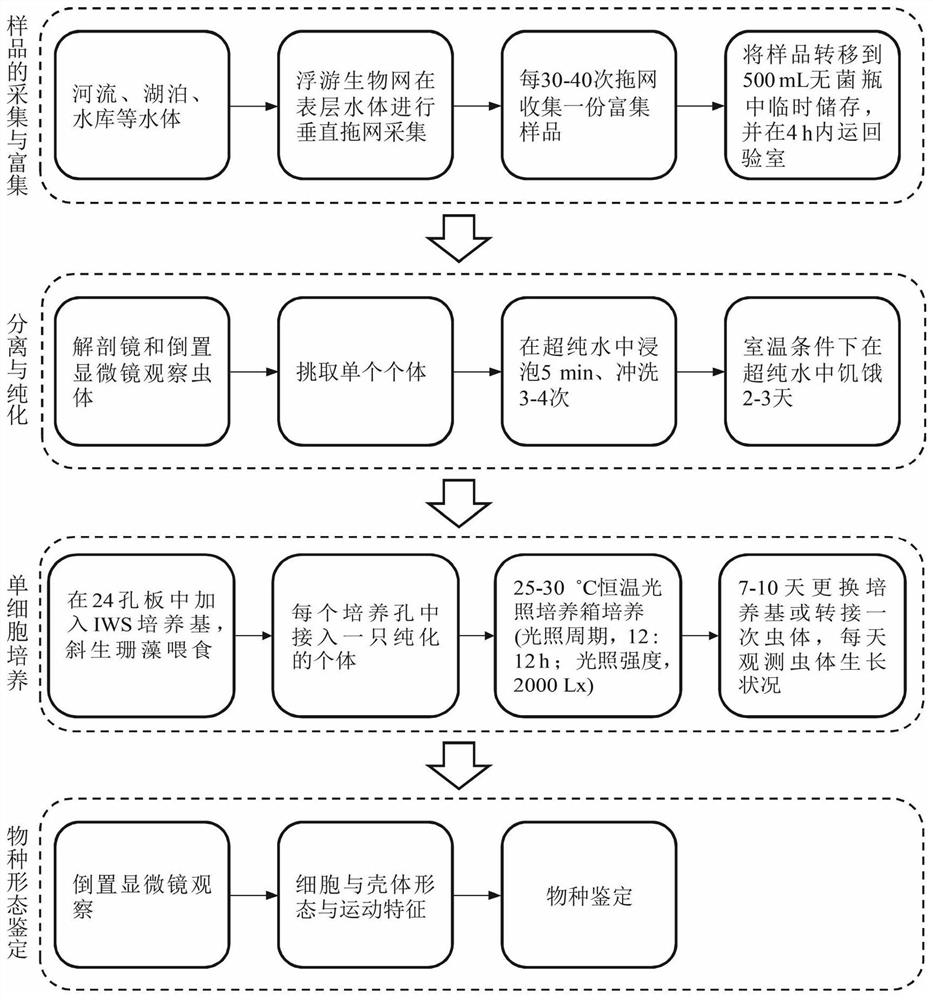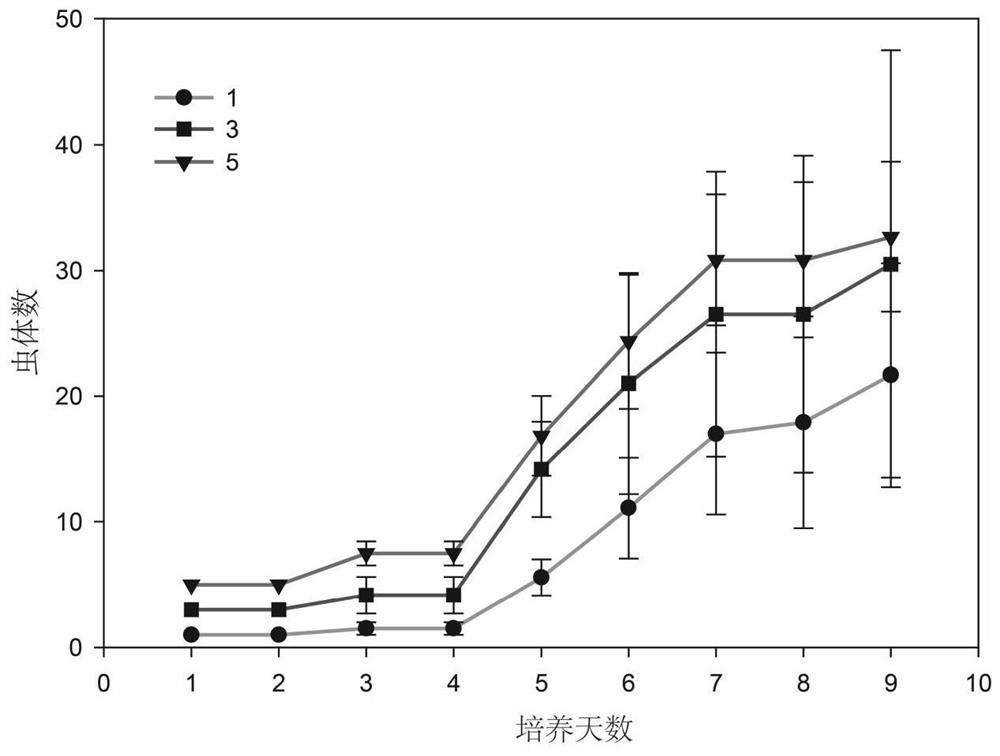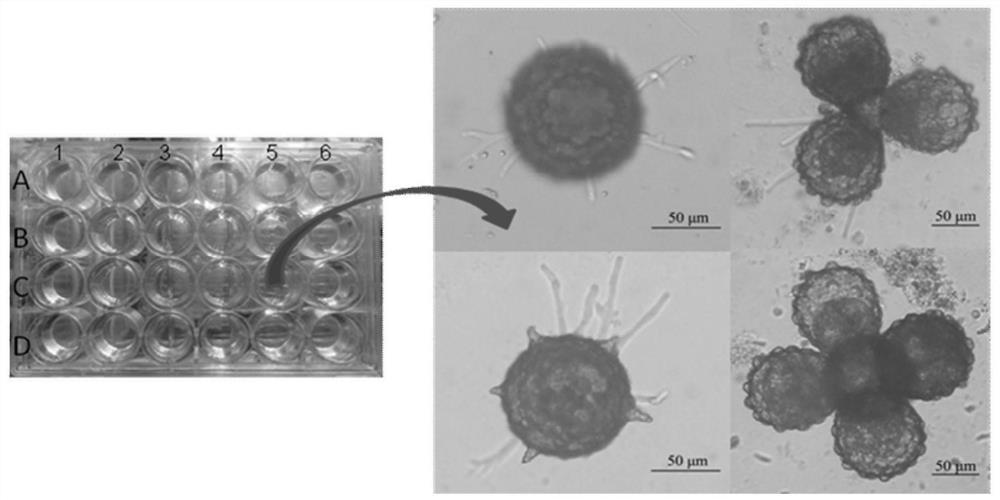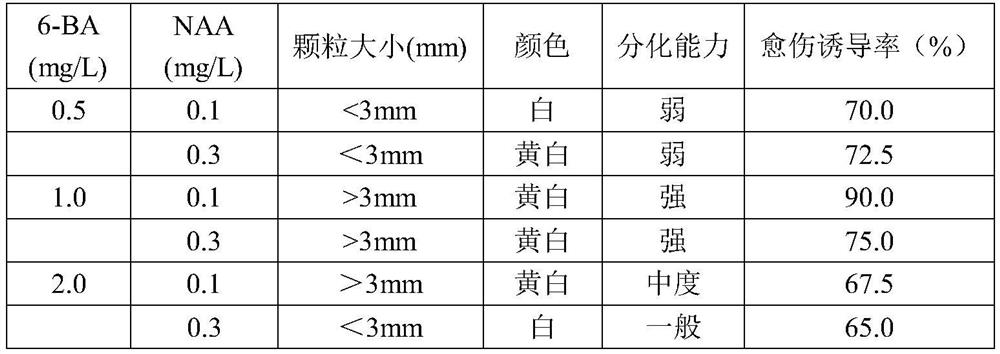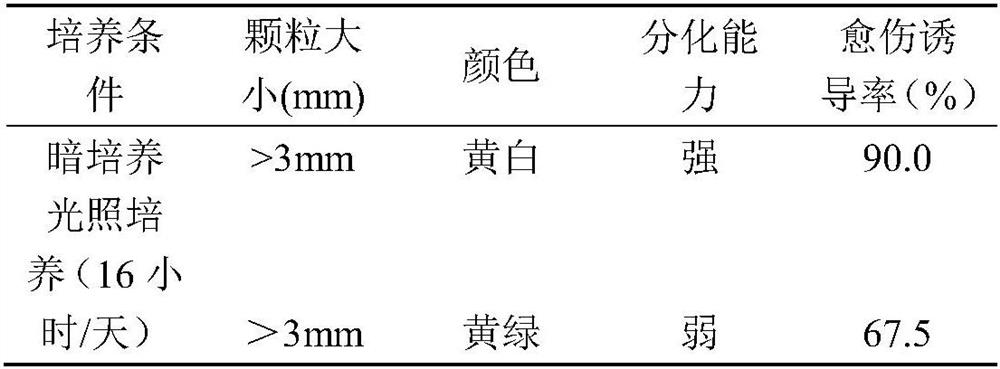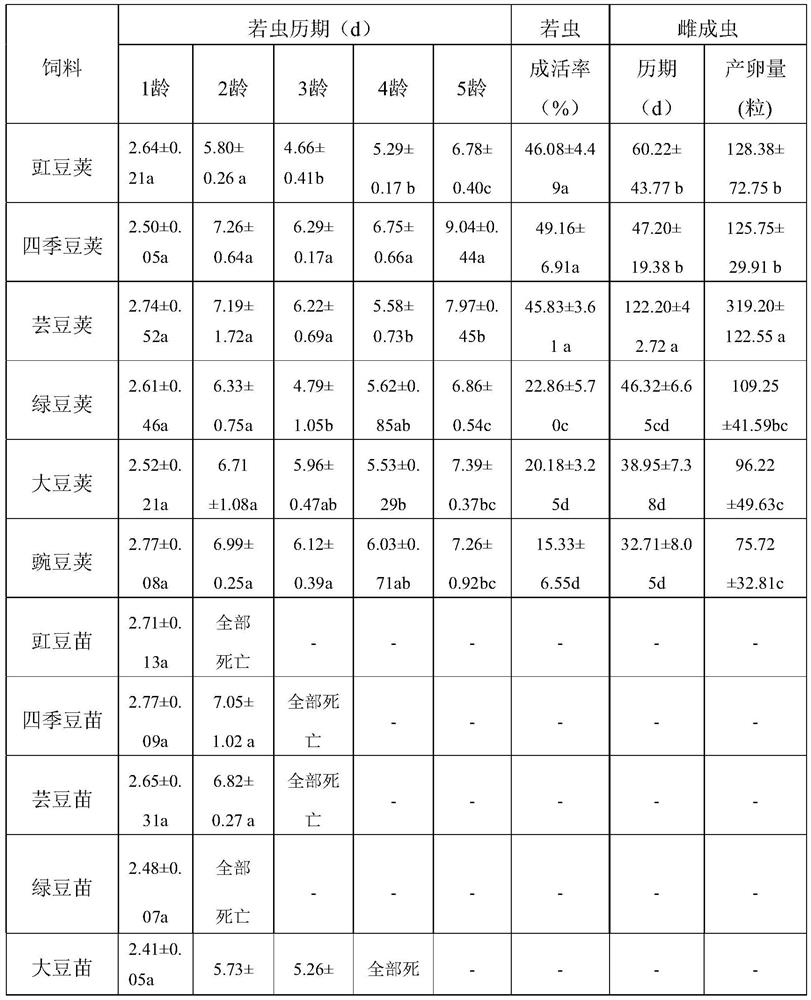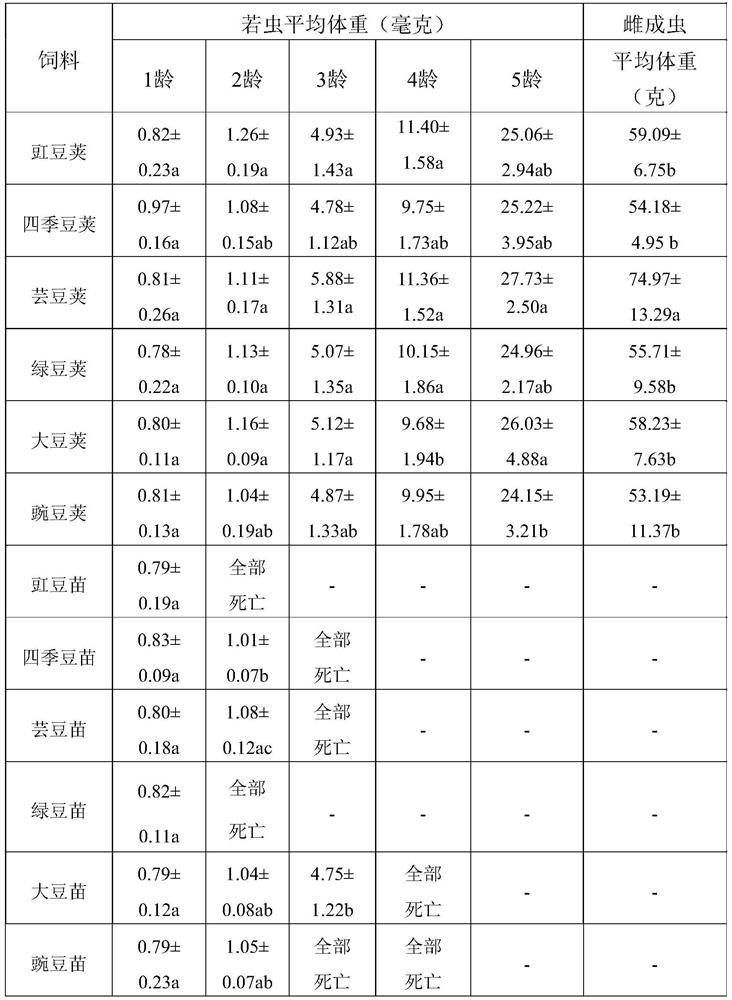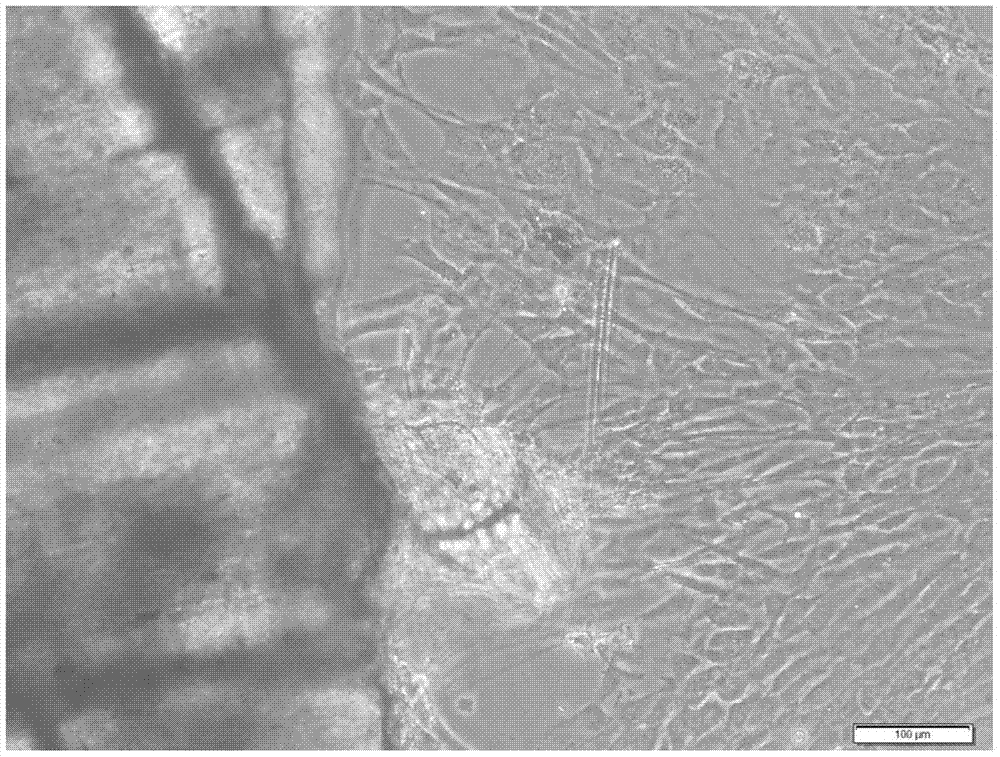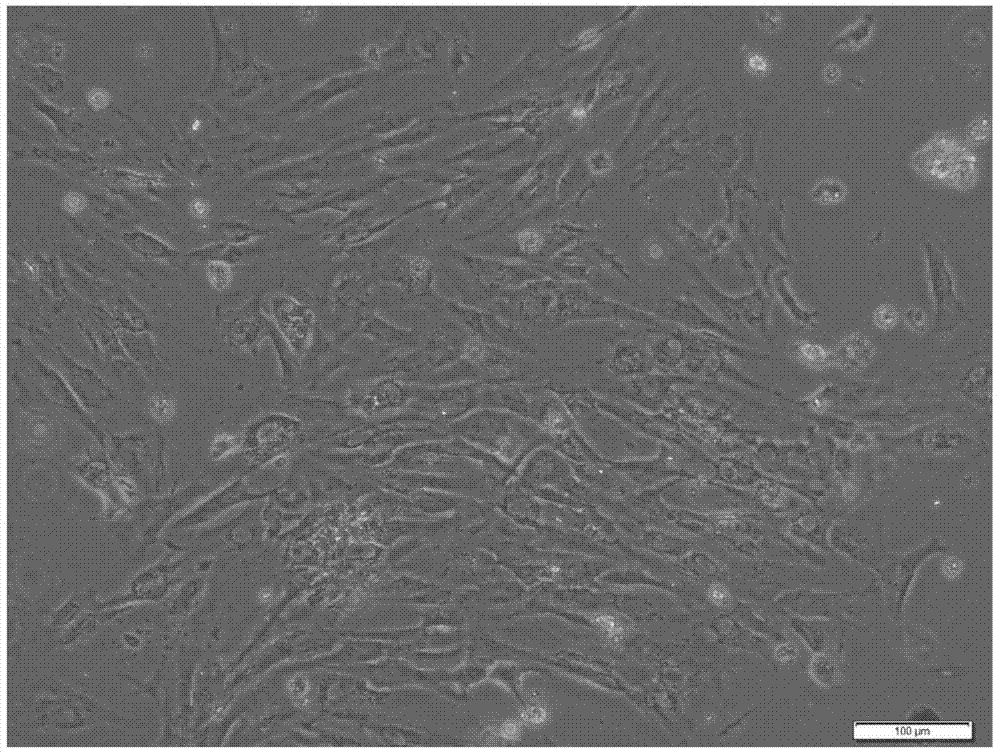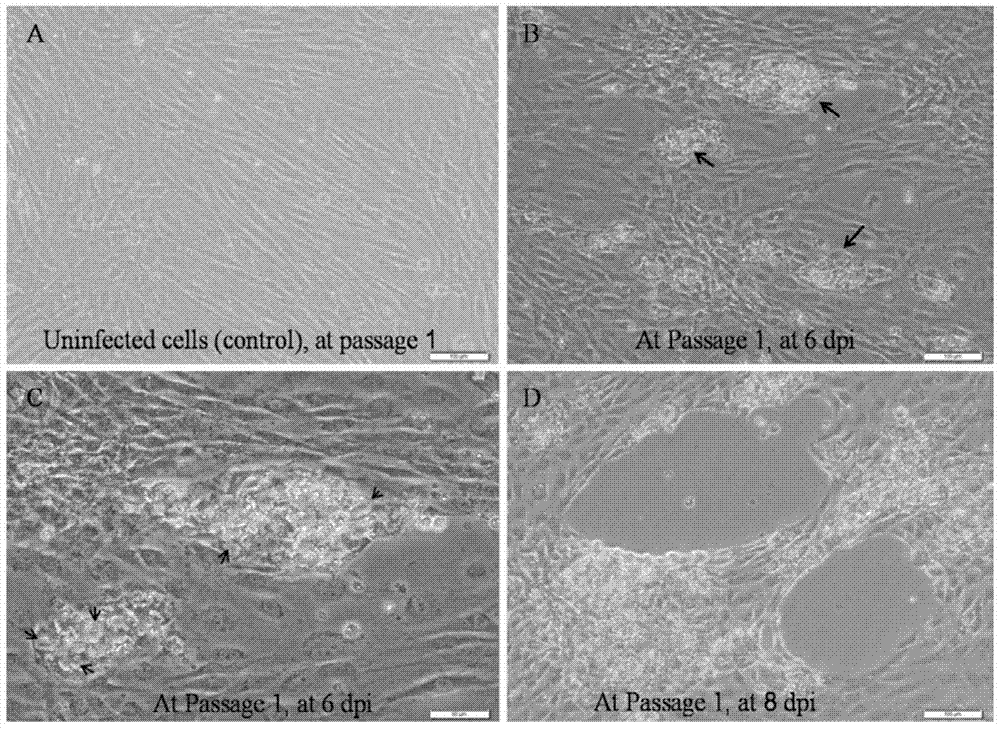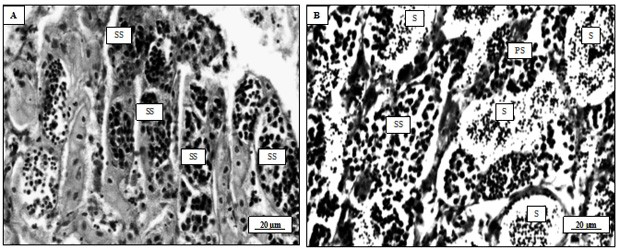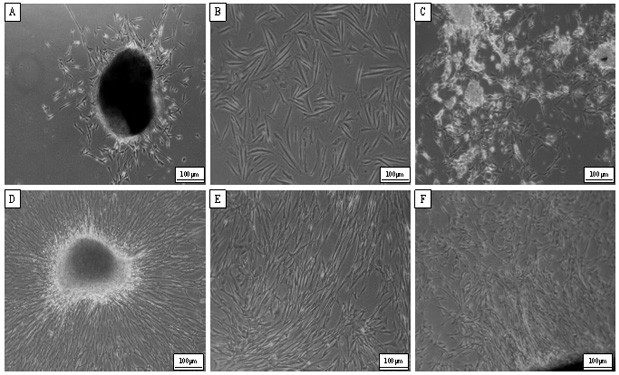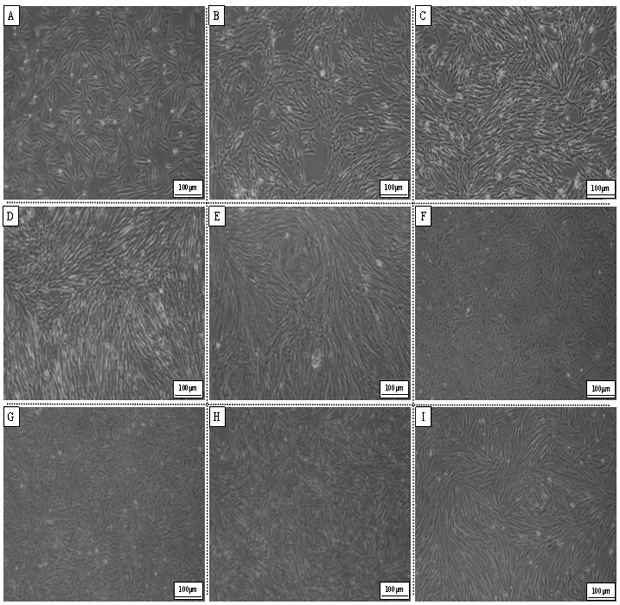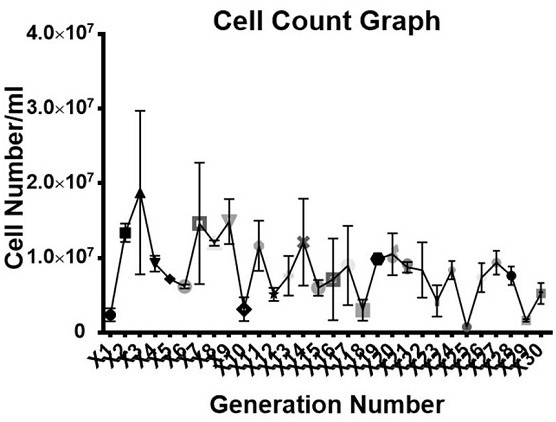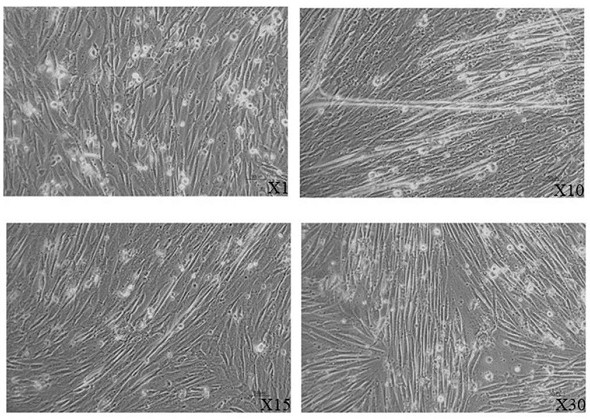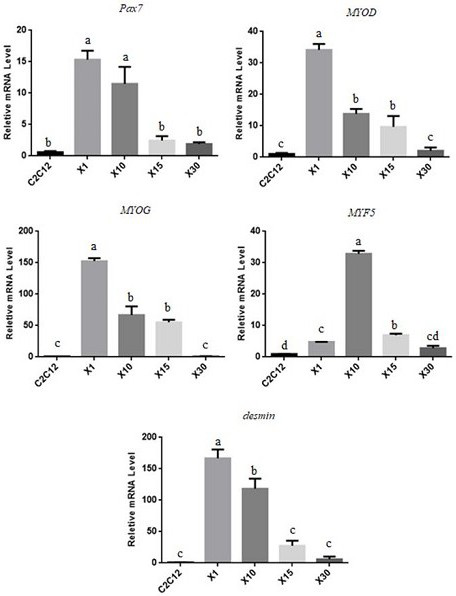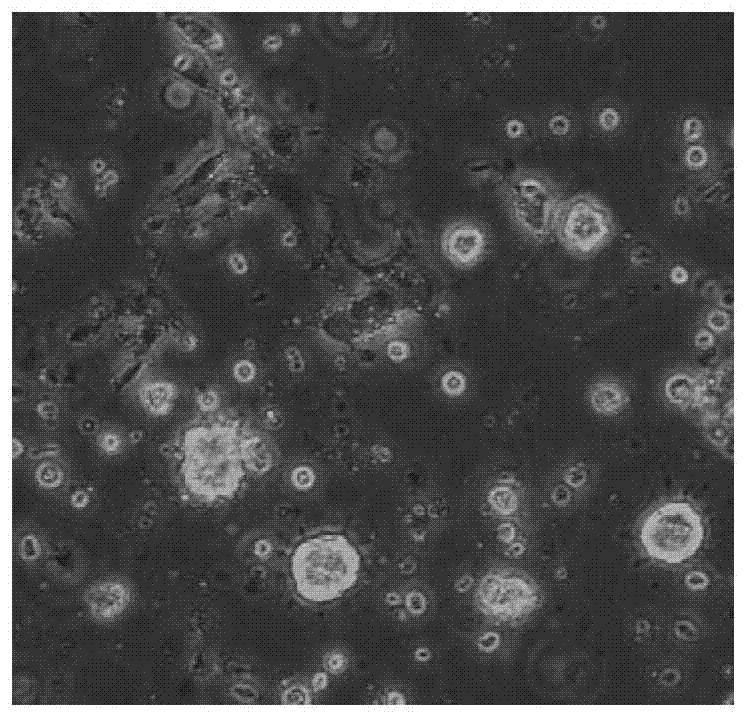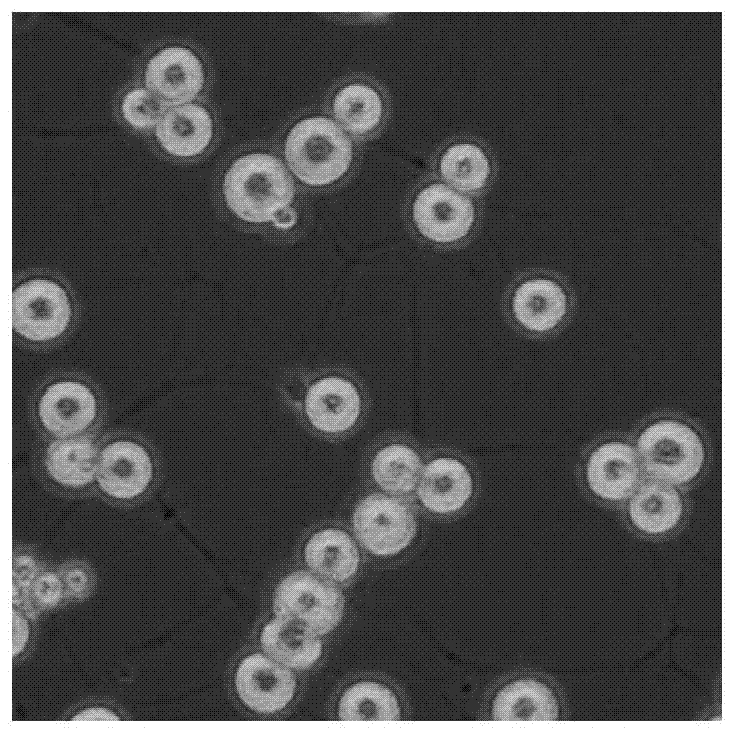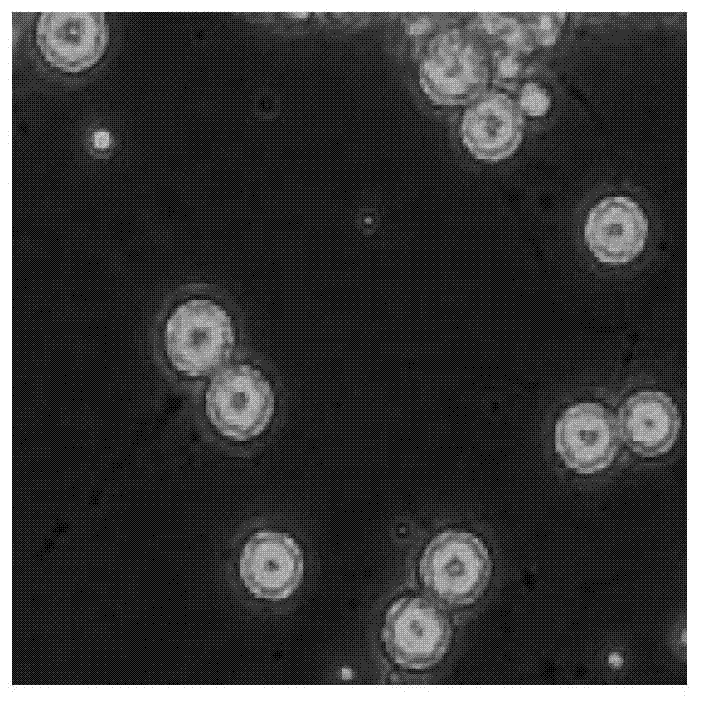Patents
Literature
33 results about "Subculture (biology)" patented technology
Efficacy Topic
Property
Owner
Technical Advancement
Application Domain
Technology Topic
Technology Field Word
Patent Country/Region
Patent Type
Patent Status
Application Year
Inventor
In biology, a subculture is a new cell or microbiological culture made by transferring some or all cells from a previous culture to fresh growth medium. This action is called subculturing or passaging the cells. Subculture is used to prolong the life and/or expand the number of cells or microorganisms in the culture.
HUVEC (human umbilical vein endothelial cell) separation, culture and subculture method
InactiveCN102827805AEasy to get materialsEasy to operateVertebrate cellsArtificial cell constructsWater bathsPenicillin
The invention relates to an HUVEC (human umbilical vein endothelial cell) separation, culture and subculture method belonging to the technical field of biology. The method comprises the following steps: (1) separation of HUVEC: taking a fresh umbilical cord, cleaning with a sterile PBS (phosphate buffer solution) containing penicillin-streptomycin, adding collagenase to perform water bath digestion at 37 DEG C, centrifuging the digestion solution, then adding an M199 culture medium, transferring into a gelatin-coated culture bottle, and culturing in a CO2 incubator at 37 DEG C; (2) culture of HUVEC: after the HUVEC is cultured at 37 DEG C for 24 hours, pouring out the culture medium, cleaning with the PBS, adding a fresh M199 culture medium, and afterwards, changing the culture medium once every two days, wherein the HUVEC can be subcultured generally after being cultured for 5-7 days; and (3) subculture of HUVEC: pouring out the culture medium, cleaning with the PBS, adding the digestion solution to digest the cell, adding a DMEM (dulbecco's modified eagle medium) containing serum to terminate the reaction once the cell is rounded, centrifuging the digested cell, and adding a fresh culture medium, wherein the HUVEC subcultured for 2-3 generations is used for experiments. The separated HUVEC is economical and practical, is simple and easy to use, and is beneficial to obtaining required in-vitro experimental model cells.
Owner:JIANGSU ACADEMY OF AGRICULTURAL SCIENCES
Method for producing hog cholera C-strain virus by culturing ST Cells in low serum
InactiveCN104630159AHigh densityReduce usageMicroorganism based processesVertebrate cellsSubculture (biology)Virus strain
The invention discloses a method for producing a hog cholera C-strain virus by culturing ST Cells in low serum, and belongs to the technical field of veterinary medicine and biology. The method comprises the following steps: S1, preparing a cell subculture and culture solution; S2, domesticating cells to adapt to a low-serum culture medium; S3, domesticating cells to adapt to a low-serum culture environment; S4, breeding a cell virus strain; S5, breeding prepared venom. The method for producing the hog cholera C-strain virus by culturing ST Cells in low serum provided by the invention can remarkably reduce the production cost and can also improve the downstream purifying efficiency, and can quickly and stably expand production scale, so that the quality is easy to balance and stabilize.
Owner:成都史纪生物制药有限公司
Rapid propagation method for performing tissue culture by using taro stem tip
InactiveCN103070078ASolve the problem of rapid propagationGood genetic stabilityHorticulture methodsPlant tissue cultureBiotechnologySubculture (biology)
The invention discloses a rapid propagation method for performing tissue culture by using a taro stem tip, belonging to the technical field of biology. The method comprises the following steps of: selecting an aseptic taro stem tip as an explant; and performing a series of operating steps such as bud induction, subculture multiplication, rooting culture and the like to form a complete test-tube plantlet. The method comprises treatment methods for culture medium components at each abovementioned stage and induction culture. A seedling with two or more leaves can grow by performing primary culture on the taro stem tip for about 20 days, so that the process of primary culture is accelerated greatly; the growth coefficient is 4.3 on average after one-time secondary culture, secondary culture can be performed for five times generally to culture 1,470 (4.35) seedlings, and two batches can be cultured every year to form 2,940 tissue culture seed tuber seedlings, so that large-scale commercial production of taros is facilitated; and the method is also easy for obtaining regeneration plants with high genetic stability and low aberration rates.
Owner:JIANGSU ACADEMY OF AGRICULTURAL SCIENCES
Genetic engineering bacteria producing beta-carotene, and application thereof
ActiveCN111088176AIncrease productionSimple production processFungiMicroorganism based processesHeterologousGenetic engineering
The invention belongs to the technical field of metabolic engineering and synthetic biology, and relates to genetic engineering bacteria producing beta-carotene. The genetic engineering first uses wild-type yeast as host bacteria, and strong promoter-expressed heterologous genes crtYB, crtI, crtE, and a catalytic region (tHMG1) gene of a rate-limiting step HMG1 are separately inserted into a genome of the host bacteria to construct initial recombinant saccharomyces cerevisiae producing beta-carotene; and then sterol acyltransferase genes (ARE1 and ARE2 genes) are overexpressed in the initial recombinant saccharomyces cerevisiae, and genes (PAH1, DPP1 and LPP1 genes) encoding phosphatidic acid phosphatase activity are knocked out to perform chassis microorganism transformation on the recombinant saccharomyces cerevisiae. The obtained recombinant saccharomyces cerevisiae can produce beta-carotene with relatively high yield and relatively low cost, the strain is stable during subculture,and no reverse mutations can appear.
Owner:BEIJING UNIV OF CHEM TECH
Efficient method for inducing somatic embryos of white-flower camellia oleifera abel Ganwu-2
ActiveCN111771720AEfficiently buildPlant tissue cultureHorticulture methodsBiotechnologyCamellia oleifera
The invention discloses an efficient method for inducing somatic embryos of white-flower camellia oleifera abel Ganwu-2, and relates to methods for inducing the somatic embryos of the white-flower camellia oleifera abel in the technical field of biology. The method comprises the following steps of (1), selecting explants; (2), disinfecting the explants; (3), preparing a callus induction culture medium; (4), performing callus induction and subculture; and (5), performing somatic embryo induction. According to a formula of the culture medium, the mature embryos of the camellia oleifera abel serve as the explants, and a system for inducing the somatic embryos of the white-flower camellia oleifera abel Ganwu-2 is established for the first time; the system for inducing the somatic embryos of the white-flower camellia oleifera abel Ganwu-2 is efficiently established, wherein multiple indexes are higher than those of the same kind of white-flower camellia oleifera abel; and on the basis, a certain foundation is laid for overcoming a genetic transformation system of the white-flower camellia oleifera abel, and the development of camellia oleifera abel breeding career is better promoted.
Owner:HUNAN UNIV
Silver crucian carp back fin cell line
InactiveCN104774802ASave human effortSave moneyMicroorganism based processesVertebrate cellsMaterial resourcesVirus
The invention relates to a silver crucian carp back fin cell line. The silver crucian carp back fin cell line is obtained through primary culture and subculture conducted on the back fin of a silver crucian carp, and a used cell culture fluid is prepared by using an M199 culture medium. The invention further provides an establishing method and application of the silver crucian carp back fin cell line. The silver crucian carp back fin cell line has the advantages that the established silver crucian carp back fin cell line can be subjected to continuous passage, and a large amount of silver crucian carp back fin cell lines can be provided. The silver crucian carp back fin cell line can be directly applied to research on silver crucian carp immunity related function genes and can be applied to a silver crucian carp virus infection experiment, a large amount of manpower and material resources are saved, and effect is better. The silver crucian carp back fin cell line can be subjected to multigelation and can be applied to important research in cell biology, virology, molecular biology, genetics, immunology and the like.
Owner:SHANGHAI OCEAN UNIV
Efficiency and rapid transgenic method for chrysanthemum
InactiveCN108118068AVector-based foreign material introductionTransformation efficiencyDecarboxylation
The invention discloses an efficiency and rapid transgenic method for chrysanthemum, belonging to the fields of genetic breeding of the chrysanthemum and molecular biology. The method comprises the following steps: (1) selecting a chrysanthemum stem as an explant, and carrying out pre-culturing on a pre-culturing medium; (2) activating and culturing recombinant expression vector transformed agrobacterium liquid, enriching thalli, and carrying out resuspension by virtue of an MS liquid culture medium, so as to obtain infection liquid; (3) soaking the explant pre-cultured in the step (1) into the infection liquid, and carrying out infection by virtue of a vacuum negative pressure method; and (4) putting the infected explant onto the pre-culturing medium, carrying out co-culturing in a dark condition, carrying out decarboxylation culture on a decarboxylation culture medium, finally, sequentially carrying out selective culture by virtue of a selective culture medium 1 and a selective culture medium 2, when determining that agrobacterium does not outbreak, carrying out subculture on a root culture medium, and carrying out further rooting screening, so as to obtain genetic chrysanthemumplants. Compared with a traditional leaf-disc-method transgenic method for the chrysanthemum, the method has the advantages that the transgenosis time is remarkably shortened, the conversion efficiency of transgenosis of the chrysanthemum is increaed, the workload of science researchers is reduced, a new way is provided for the efficient conversion and gene function analysis of the chrysanthemum,and a new thought is provided for the transgenosis of other plants.
Owner:NANJING AGRICULTURAL UNIVERSITY
Establishment method of turbot hepatic parenchymal cell line and turbot hepatic parenchymal cell line
ActiveCN113215083AStable and sustainable useNo variationCell dissociation methodsGenetically modified cellsDigestion TreatmentNutrition
The invention relates to an establishment method of turbot hepatic parenchymal cell line and the turbot hepatic parenchymal cell line. The establishment method of the turbot hepatic parenchymal cell line comprises the following steps: obtaining turbot liver tissue; cutting the liver tissue into tissue blocks, and carrying out washing; carrying out digestion treatment by adopting type 4 collagenase, and carrying out washing again; carrying out digestion treatment on the tissue blocks obtained after the digestion treatment by adopting trypsin again; adding a primary complete medium to terminate digestion to obtain treated tissue blocks; uniformly attaching the treated tissue blocks into a culture bottle, placing the attached culture bottle into an incubator at 23 DEG C for 6 hours; inverting the culture bottle for 6 hours; adding 4 ml of a primary complete culture medium after the culture bottle is upright; performing primary culture; and then, performing subculture. The turbot hepatic parenchymal cell line established by the method can realize continuous passage so as to provide a large number of turbot hepatic cells; and the established stable and sustainable turbot hepatocyte line can be applied to the molecular cell biology research of turbot nutrition metabolism, thereby overcoming defects in the prior art at the cellular level.
Owner:OCEAN UNIV OF CHINA
Method for establishing genetic transformation system of dendrobium nobile
The invention provides a method for establishing a genetic transformation system of dendrobium nobile and relates to the technical field of genetic transformation. The method provided by the inventioncomprises the following steps: inoculating an induction culture medium with aseptic seedlings of the dendrobium nobile, so as to obtain calli; inoculating a subculture medium with the calli, so as toobtain subculture calli; transferring a target gene into the subculture calli, so as to obtain infected calli; inoculating a 1 / 2MS plate culture medium with the infected calli; inoculating a differentiation culture medium with the co-cultured infected calli, so as to obtain clustered buds; inoculating a bud strengthening culture medium with the clustered buds, so as to obtain strengthened buds; and inoculating a rooting and seedling strengthening co-culture medium with the strengthened buds, thereby obtaining transgenic dendrobium nobile. According to the method, the system is established based on a tissue culture rapid-propagation system, and a technical foundation is settled for carrying out genetic improvement on ornamental properties and medicinal characteristics of the dendrobium nobile by using molecular biology ways.
Owner:INST OF BOTANY JIANGSU PROVINCE & CHINESE ACADEMY OF SCI
Method for rapidly breeding seedlings by using alpinia katsumadai stem tips
PendingCN114568307ASame biological ageGrow neatlyAfforestationHorticulture methodsAlpiniaSubculture (biology)
The invention belongs to the technical field of agricultural biology, and relates to a method for rapidly breeding seedlings by using alpinia katsumadai stem tips, which comprises the processes of induced differentiation of adventitious buds, subculture multiplication, rooting induction, transplanting and management. According to the method, the technological process is simple, the adventitious buds are directly induced and differentiated by taking bamboo shoot buds or stem tips of non-flowering tillering plants as explants, the adventitious buds are subjected to subculture multiplication to form clumpy buds, the adventitious buds are rooted and transplanted, a large number of healthy and high-quality seedlings capable of being used for production and cultivation can be obtained in a short time, the period is short, the obtained seedlings are consistent in physiological age, and the yield is high. The alpinia katsumadai seedlings grow neatly, are suitable for industrialized seedling production and large-scale cultivation, meet the requirements of artificial planting for excellent seedlings, and play an important role in promoting development and utilization of alpinia katsumadai and protecting wild resources.
Owner:TROPICAL CORP STRAIN RESOURCE INST CHINESE ACAD OF TROPICAL AGRI SCI
In-vitro culture, identification and induced differentiation method of sebastes schlegeli myoblasts
ActiveCN111154716AEffectively induce differentiationCell dissociation methodsMicrobiological testing/measurementMyogenic cellSubculture (biology)
The invention relates to an in-vitro culture, identification and induced differentiation method of sebastes schlegeli myoblasts, and belongs to the field of molecular biology. The cultured sebastes schlegeli myoblast can be subjected to subculture, and is used for basic research on the muscle growth of marine scleroderma; the induced differentiation of myoblasts in vitro can be effectively carriedout, and a basis is provided for the molecular mechanism research of fusing monocytes into polycytes in vivo.
Owner:OCEAN UNIV OF CHINA
Preparation method of stem cell factor oral product
ActiveCN113797228AHigh activityImprove survival ratePowder deliveryCulture processUltrafiltrationFreeze-drying
The invention discloses a preparation method of a stem cell factor oral product, and relates to the technical field of biology. The preparation method comprises the following steps of obtaining primary bovine umbilical cord mesenchymal stem cells; carrying out subculture on the primary bovine umbilical cord mesenchymal stem cells; when the P3-P5-generation bovine umbilical cord stem cells are cultured until the cell fusion degree reaches 80-90%, adopting a secretion-promoting culture solution for culture, collecting a supernate after culture is conducted for 48 h, filtering the supernate with a 0.1-micron filter membrane, and performing ultrafiltration and concentration to obtain a concentrated solution, wherein the secretion-promoting culture solution comprises a basic culture solution, and glutamine, noradrenaline, transforming growth factors, glucosamine and astragalus polysaccharide which are added into the basic culture solution; and pre-freezing the concentrated solution, and then carrying out ultralow-temperature freeze drying to obtain freeze-dried powder. According to the invention, the amplification of the umbilical cord mesenchymal stem cells can be effectively improved, the secretion of stem cell factors can be induced, and the obtained product can condition the body from the cellular level, comprehensively improve the body function, improve the sub-health and repair and strengthen the immune system.
Owner:安徽科门生物科技有限公司
A kind of construction method of barb barb fin cell line
ActiveCN106479960BEasy to operateGood repeatabilityCell dissociation methodsCulture processBiotechnologyPenicillin
The invention relates to a construction method of a cell line of a fin of spinibarbus hollandi. The construction method comprises the following steps of 1), acquisition of the fin of the spinibarbus hollandi: jointly sterilizing a fish body by adopting methylene blue and ethyl alcohol; 2), primary culture: carrying out the culture by adopting a DMEM (Dulbecco's Modified Eagle Media) / F12 or L-15 culture solution containing a cell growth factor, fetal bovine serum, penicillin, streptomycin, gentamicin and amphotericin B; 3), subculture: when handing to an eighth generation, changing a cell culture solution to a basal culture solution, so that the cell line of the fin of the spinibarbus hollandi is established successfully. The cell line of the fin of the spinibarbus hollandi, which is obtained through the construction method provided by the invention, can be used for realizing continuous passage, is directly applied to biological characteristic research, can be used for meeting the demands of the germplasm-resource storage and the theoretical research of an economic species of the spinibarbus hollandi, can also be repeatedly freeze-thawed, and can be applied to the important research of cell biology, virology, toxicology, molecular biology, genetics, immunology and the like.
Owner:KUNMING INST OF ZOOLOGY CHINESE ACAD OF SCI
Populus alba xP .berolinensis hormone autotrophic cell line capable of realizing plant regeneration
The invention belongs to the technical field of plant biology, and mainly provides a populus alba xP .berolinensis hormone autotrophic cell line capable of realizing plant regeneration. A suspension culture system and an adventitious bud differentiation and rooting plant regeneration system are established; callus is induced from populus alba xP .berolinensis pollen in a mononuclear edging stage in an MS culture medium added with 2 mg / L of 2,4-D, 0.5 mg / L of KT, 30g / L of sucrose and 7.5 g / L of agar, and continuous subculture is carried out for 5 times to obtain light yellow callus with loose texture and vigorous growth; the callus still can rapidly grow in an MS culture medium only containing 30 g / L of sucrose and is the hormone autotrophic cell line; after the hormone autotrophic cell line is inoculated into a 150 mL glass triangular flask containing 50 mL of a MS liquid culture medium with 50 g / L of sucrose for suspension culture for 18 days, the growth amount is increased by about 9.2 times; culturing is carried out in an MS culture medium added with 0.05 mg / L of TDZ, 25g / L of sucrose and 7.5 g / L of agar for 3 months, and inducing is carried out to form a large number of adventitious buds; and the adventitious buds are inoculated into a rooting culture medium to be cultured for 30 days, rooting of the adventitious buds is achieved, and regenerated plants are formed.
Owner:NORTHEAST FORESTRY UNIVERSITY
A kind of nitrogen-fixing bacterium mutant with good nitrogen-fixing ability and its application
ActiveCN112029680BIncrease nitrogenase activityDry weight increaseBacteriaMicroorganism based processesBiotechnologyMicroorganism
A kind of Azotobacter chroococcum mutant with good nitrogen-fixing ability and application thereof, it is Azotobacter chroococcum A2820, preservation number is CGMCC No.20443, preservation number is CGMCC No.20443, preservation date is 2020 On July 24th, the preservation unit is the General Microbiology Center of China Microorganism Culture Collection Management Committee, and its nitrogenase activity is 210-280 nmol·mg ‑1 ·h ‑1 The mutant of the present invention is a mutant with high enzymatic activity, which is mutagenized by ARTP for 28 seconds, measured and screened by acetylene reduction method, and has good nitrogen-fixing ability, and its genetic stability is confirmed by multiple subcultures.
Owner:SHANGHAI ACAD OF AGRI SCI
Infectious clone of human cytomegalovirus and its construction method and application
ActiveCN105713866BDirect observation of expressionSmall molecular weightMicrobiological testing/measurementViruses/bacteriophagesCytomegalovirus infectionsWild type
The invention relates to the technical field of biology, and in particularly relates to human cytomegalovirus (HCMV) infectious clone as well as a construction method and applications of the HCMV infectious clone. The construction method comprises the following steps: inserting green fluorescent protein into BAC, thus obtaining a BAC carrier with GFP; taking a wild-type HCMV Han viral genome as a template, carrying out PCR amplification on left and right homologous recombination arms of the template, carrying out purification and digestion on the product, carrying out connection and PCR amplification, connecting the full-length sequence of the left and right homologous recombination arms with the BAC carrier with the GFP, carrying out digestion and linearized transfection on HEL cells infected with the wild-type HCMV Han viruses, carrying out subculture, and extracting the total DNA of the cells; and electro-transforming the total DNA into competent cells, and culturing in a resisting culture medium. The biological properties of the recombinant viruses generated by the infectious clone are similar to that of the wild-type viruses, and the infection condition of the infectious clone of the viral strains in the cells is observed through the expression of GFP reporter genes.
Owner:WUHAN INST OF VIROLOGY CHINESE ACADEMY OF SCI
Cudrania tricuspidata tissue culture seedling subculture method
PendingCN112931222ABreed fastEasy to operateHorticulture methodsPlant tissue cultureAxillary budDisinfectant
The invention belongs to the field of plant cultivation, relates to a plant tissue culture method, in particular to a cudrania tricuspidata tissue culture seedling subculture method, and belongs to the technical field of biology. The method comprises the following steps of 1) selecting explants: selecting robust cudrania tricuspidata seedlings, and taking stem segments with axillary buds as the explants; 2) disinfecting the explants: disinfecting the explants with a disinfectant, airing the disinfected explants, and inoculating the aired explants onto a starting culture medium; 3) performing starting culture: inoculating the treated explants onto the starting culture medium on an ultra-clean workbench, inoculating one explant stem segment into each test tube, and performing culture for 28 days to obtain aseptic seedlings; and 4) performing proliferation / subculture: taking the terminal buds, the base bud clusters and the stem segments of the aseptic seedlings for subculture and proliferation. According to the method, the proliferation coefficient can reach 1: (4-4.5), and the plant height is about 3.5 cm; and the survival rate and the qualification rate are higher than 98%.
Owner:苏州回文生物种业科技有限公司
A strain of Pseudomonas monkeys for preventing and controlling Dactylodes and its fermentation broth and application
The invention relates to the technical field of microorganisms, in particular to a strain of Pseudomonas monkeys for preventing and treating Dactyloides nematodes and its fermentation broth and application. The Pseudomonas monkey has been deposited in the General Microbiology Center of the China Microbial Culture Collection Management Committee on December 15, 2020, and its preservation number is CGMCC No. 21378; the preservation address is No. 3, No. 1 Beichen West Road, Chaoyang District, Beijing. No. The Pseudomonas monkeys can effectively prevent and control stem nematodes, and compared with 5% abamectin, the Pseudomonas monkeys has better control effect, stable subculture, and stable inheritance of nematicidal activity. The Pseudomonas monkey is safe for plant growth and harmless to the environment.
Owner:HEBEI AGRICULTURAL UNIV.
Human prostate cancer cell and its primary isolation culture and subculture method and application
ActiveCN103881975BMicrobiological testing/measurementTumor/cancer cellsProstate cancer cellCancer cell
The invention discloses a cell strain from human prostate cancer. The cell is named as human prostate cancer cell HPCC / HL-002, and the preservation number is CCTCCNO:C2013102. The cell strain is prepared from an exairesis cancer tissue sample of a prostate cancer patient with T3b poorly differentiated adenocarcinoma according to clinical stages, has typical tumor cellular biology characteristics, can be continuously passed for a long time in vitro, and is kept stable in character. In addition, the invention further discloses a preparation method of the cell strain. The human prostate cancer cell disclosed by the invention has the biology characters of clinical essential prostate, and can be applied to molecular mechanism researches on pathogenesis, invasion and metastasis of prostate, pharmacodynamics study and detection on anti-cancer medicines selected in vitro.
Owner:WUHAN UNIV
Gene sequence capable of preventing gradual inactivation of promoter in subculture and applications of gene sequence
InactiveCN105255867AInactivation will notReduce yieldImmunoglobulinsVector-based foreign material introductionNucleotideNucleotide sequencing
The invention relates to molecular biology and particularly discloses a gene sequence capable of preventing gradual inactivation of a promoter in subculture and applications of the gene sequence. The nucleotide sequence of the gene sequence is shown as SEQ ID No.1. The gene sequence is used for constructing a carrier and a CHO cell line, can prevent gradual inactivation of the promoter in subculture of CHO cells and can be used for monoclonal antibody production through the CHO cell line to increase the monoclonal antibody yield.
Owner:BEIJING YISHENGHE BIOLOGICAL SCI & TECHCO LTD
Tissue culture and rapid propagation improvement method and device for sunshine rose grapes
PendingCN114680043ASolve the problem of time-consuming and low efficiencyEasy to carryHorticulture methodsPlant tissue cultureSubculture (biology)Seedling
The invention relates to the technical field of biology, in particular to a sunshine rose grape tissue culture and rapid propagation improvement method and device. The explants are disinfected; carrying out primary culture on the disinfected explants to obtain robust bud seedlings; carrying out rooting culture on the robust bud seedlings obtained by primary culture to obtain rooted seedlings; and hardening the rooted seedlings, and putting the seedlings into the ground. The ratio of a primary culture medium to a rooting culture medium is improved, the primary germination rate and the rooting rate are greatly increased, conventional subculture is not carried out, complex procedures and uncontrollable pollution factors of subculture are avoided, and under the condition that production conditions and manual operation are basically consistent, the production efficiency is greatly improved. The conventional tissue culture needs 3 months for producing a batch of healthy nursery stocks (based on 1000 plants), and only 45 days are needed after the method is improved, so that the problems of long time consumption and low efficiency of the existing sunshine rose grape tissue culture and rapid propagation technology are solved.
Owner:桂林市农业科学研究中心
A kind of separation and cultivation technology of sand shell insect
The invention discloses a difflugia separation and culture technique and belongs to the field of microbiology. The technique is mainly characterized in that single difflugia can be separated and purified from a natural water body, and indoor subculture can be implemented. A great amount of difflugia individuals can be obtained through indoor culture, obtaining time and space limits of the difflugia can be overcome, and rich experiment materials can be provided for deeply and systermatically studying difflugia. The technique is simple and efficient in method, low in cost and wide in applicationrange.
Owner:INST OF URBAN ENVIRONMENT CHINESE ACAD OF SCI
Instantaneous conversion method for duckweed
ActiveCN113462716AEasy to operateShorten the timeVector-based foreign material introductionAngiosperms/flowering plantsBiotechnologySucrose
The invention provides an instantaneous conversion method for duckweed. The instantaneous conversion method for duckweed comprises the following steps: collecting duckweed; carrying out subculture on the collected duckweed on a liquid culture medium; conducting activating and extracting agrobacterium tumefaciens with a fluorescence-labeled target gene; preparing a bacterium dissolving solution containing Silweet-775 and cane sugar; adding agrobacterium with the fluorescence-labeled target gene into the bacterium dissolving solution to completely dissolve thalli in the bacterium dissolving solution, and cracking the agrobacterium to release plasmids; selecting a complete duckweed, pricking a small hole in the back surface of a duckweed leaf by using a needle head, putting the duckweed into the bacterium dissolving solution for soaking and infecting, putting the infected duckweed into a duckweed liquid culture medium, and carrying out dark culture to obtain instantly infected duckweed. The method for instantly infecting the duckweed with the agrobacterium mainly adopts a needle punching method, has the characteristics of easiness in operation, short time, low cost and the like, and can be applied to related theories and application researches such as molecular biology of duckweed, bioreactor construction, fluorescence labeling and the like.
Owner:TIANJIN NORMAL UNIVERSITY
Fig callus culture method
InactiveCN113557961AInduce redifferentiationHigh purityPlant tissue cultureHorticulture methodsBiotechnologyAxillary bud
Owner:JIANGSU POLYTECHNIC COLLEGE OF AGRI & FORESTRY
Method for artificially feeding riptortus pedestris in whole growth period
InactiveCN112314534AComplex and diverse ingredientsComplementaryAnimal feeding stuffNymphArtificial rearing
Owner:INST OF PLANT PROTECTION HEBEI ACAD OF AGRI & FORESTRY SCI
Gibel carp dorsal fin cell line
InactiveCN104774802BSave human effortSave moneyMicroorganism based processesVertebrate cellsBiotechnologyCell culture media
The invention relates to a dorsal fin cell line of gibel crucian carp. The dorsal fin cell line of gibel crucian carp is obtained through primary culture and subculture of the dorsal fin of gibel crucian carp. The used cell culture medium is prepared from M199 medium. The invention also provides a construction method and application of the gibel carp dorsal fin cell line. The advantages are as follows: the dorsal fin cell line of gibel crucian carp established by the invention can be passed down continuously, and a large number of dorsal fin cell lines of gibel crucian carp can be provided. The cell line can be directly applied to the study of the immune-related functional genes of the gibel carp, and the cell line can be applied to the virus infection experiment of the gibel carp, which saves a lot of manpower and material resources and has a good effect. The dorsal fin cell line of gibel carp can be repeatedly frozen and thawed, and can be used in important researches such as cell biology, virology, toxicology, molecular biology, genetics and immunology.
Owner:SHANGHAI OCEAN UNIV
Takifugu bimaculatus testis tissue cell line and application thereof
PendingCN114717176AExcellent cell propertiesStrong divisionCell dissociation methodsClimate change adaptationTakifugu bimaculatusSubculture (biology)
The invention provides a takifugu bimaculatus testis tissue cell line and application thereof, and belongs to the technical field of biology. According to the method, the testis of the takifugu bimaculata is subjected to isolated culture, primary cells of the testis are obtained, continuous subculture is carried out, and finally the stable testis cell TBTc of the takifugu bimaculata is established. The testis cell TBTc of the takifugu bimaculatus is preserved in China Center for Type Culture Collection on October 11, 2021, and the preservation number is CCTCC NO: C2021230. The cell line is excellent in cell character, mainly comprises long fibrous cells, and is vigorous in division, short in passage time, easy to digest, good in adherence rate and resistant to hunger. The takifugu bimaculatus testis cell line provides a new in-vitro model for research on a gonad development mechanism of takifugu bimaculatus.
Owner:FUJIAN AGRI & FORESTRY UNIV +1
Subculture purification method of sheep embryo-derived myoblasts
ActiveCN114606182AA lot of cellsHigh purityCell dissociation methodsSkeletal/connective tissue cellsBiotechnologyMyogenic cell
The invention relates to the technical field of biology, in particular to a passage purification method of sheep embryo-derived myoblasts. After sheep embryo-derived myoblasts are obtained through a primary cell culture technology, a large number of high-purity myoblasts are continuously obtained by utilizing an improved purification method in a passage process. By adopting the passage purification method provided by the invention, after the cells are continuously cultured for 10 generations, the cells are automatically differentiated to generate myotube structures, at present, the cells are continuously cultured for more than 35 generations, the growth state of the cells is good, and the cells have myoblast characteristics through characteristic analysis and karyotype identification. The myoblasts obtained by the method are wide in application range, can be used for gene screening and function verification, and have relatively high application value and social and economic value.
Owner:INST OF ANIMAL SCI OF CHINESE ACAD OF AGRI SCI
Ganoderma applanatum transgenic method
PendingCN114085862AReduce pollutionThe conversion efficiency of tree tongue is goodFungiMicroorganism based processesBiotechnologyTransformation efficiency
The invention discloses a Ganoderma applanatum transgenic method, and belongs to the field of biology. The method comprises the following steps: preparing a culture medium comprising a YPG culture medium and an MYG regeneration culture medium, constructing a recombinant eukaryotic expression plasmid vector pCAMBIA1303-pGPD-FIP-gap, suspending purified 1 * 10<7> Ganoderma applanatum protoplast in 250 [mu]L of osmotic pressure stabilizer, adding 5 [mu]g of plasmid pCAMBIA1303-pGPD-FIP-gap, lightly shaking up, then placing on ice, and carrying out ice bath treatment for 10 min; adding 50 [mu]L of a PEG buffer solution, placing on ice, carrying out ice bath treatment for 30 min, adding 1 mL of the PEG buffer solution, uniformly mixing, and standing at 28 DEG C for 20 min, wherein the PEG buffer solution comprises PEG6000, 15mM CaCl2 and 10mM Tris aqueous solution; and carrying out regeneration culture, hygromycin resistance screening and subculture, and then detecting. The result shows that transformants subjected to hygromycin resistance screening twice are positive, the PCR positive detection result shows that the positive transformants can be obtained by 10-60% of the PEG buffer solution, the efficiency is the best when the 30% of the PEG buffer solution is used for carrying out ganoderma applanatum conversion, 1 [mu[g of plasmid can obtain about 110-120 positive transformants, and the positive transformation rate can reach 95%.
Owner:SHENYANG AGRI UNIV
Tsingtao amphioxus cell line culture fluid and preparation method thereof
InactiveCN102757939AFacilitate scientific researchSolve technical problemsForeign genetic material cellsTelomeraseGenetics genomics
The invention belongs to the field of cytobiology. The successful subculture of Tsingtao amphioxus gill primary cells is implemented by cDNA transfection of human telomere enzyme catalysis subunit hTERT, thereby establishing the Tsingtao amphioxus cell line. The invention provides a cell culture fluid for cell line establishment, which uses a Leiboviz's L15 culture medium as the basal culture medium and contains the following components: at least one essential amino acid and non-essential amino acid, at least one vitamin, at least one salt, at least one buffer solution and saccharide, and at least one phenolic compound. The invention also provides a method for preparing the culture fluid. The invention successfully solves the technical problems in in-vitro subculture of amphioxus cells, and is beneficial to deep research in the fields of genetics, immunology, evolution, auxology, genomics and the like.
Owner:SUN YAT SEN UNIV
Features
- R&D
- Intellectual Property
- Life Sciences
- Materials
- Tech Scout
Why Patsnap Eureka
- Unparalleled Data Quality
- Higher Quality Content
- 60% Fewer Hallucinations
Social media
Patsnap Eureka Blog
Learn More Browse by: Latest US Patents, China's latest patents, Technical Efficacy Thesaurus, Application Domain, Technology Topic, Popular Technical Reports.
© 2025 PatSnap. All rights reserved.Legal|Privacy policy|Modern Slavery Act Transparency Statement|Sitemap|About US| Contact US: help@patsnap.com
